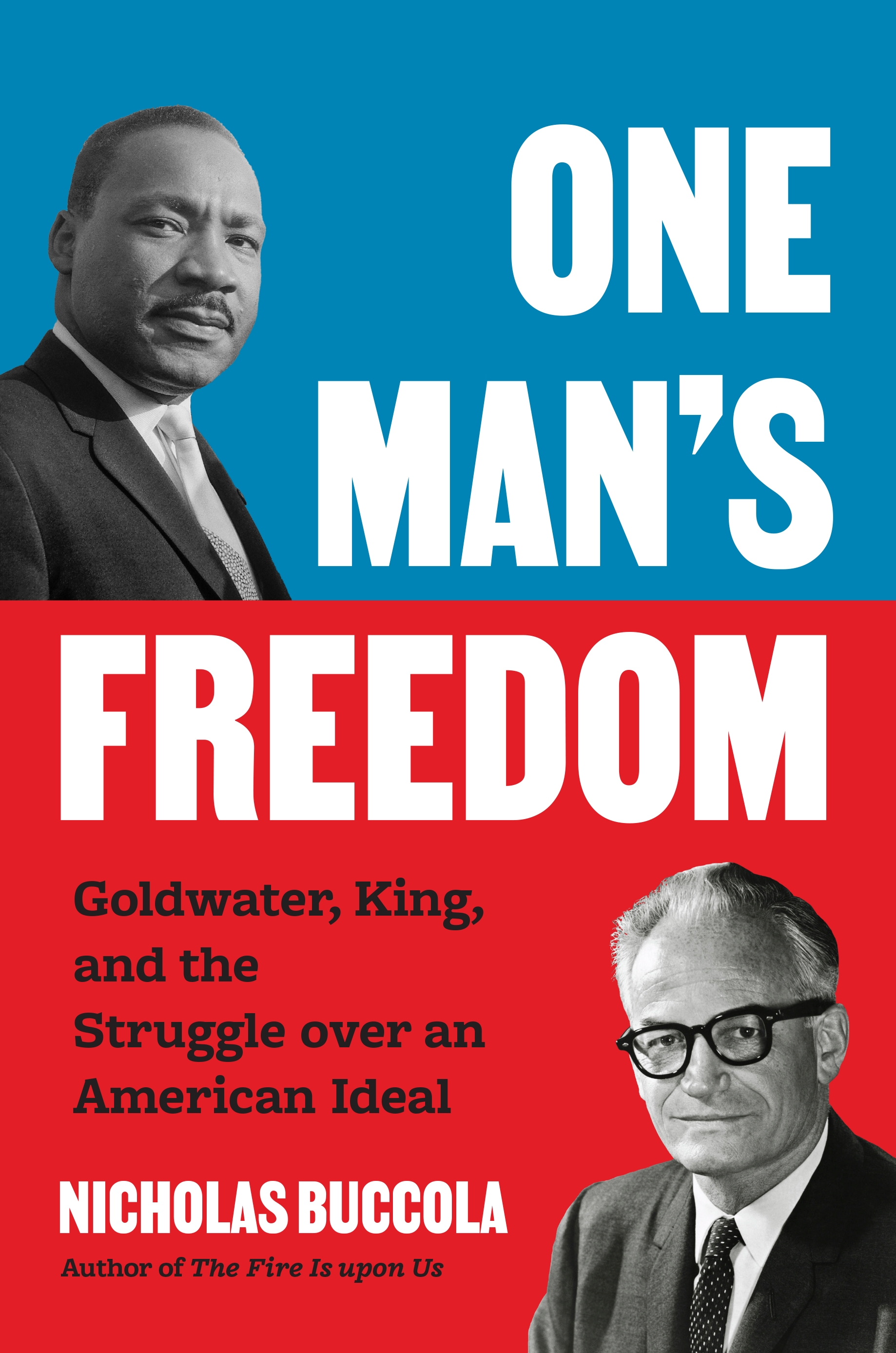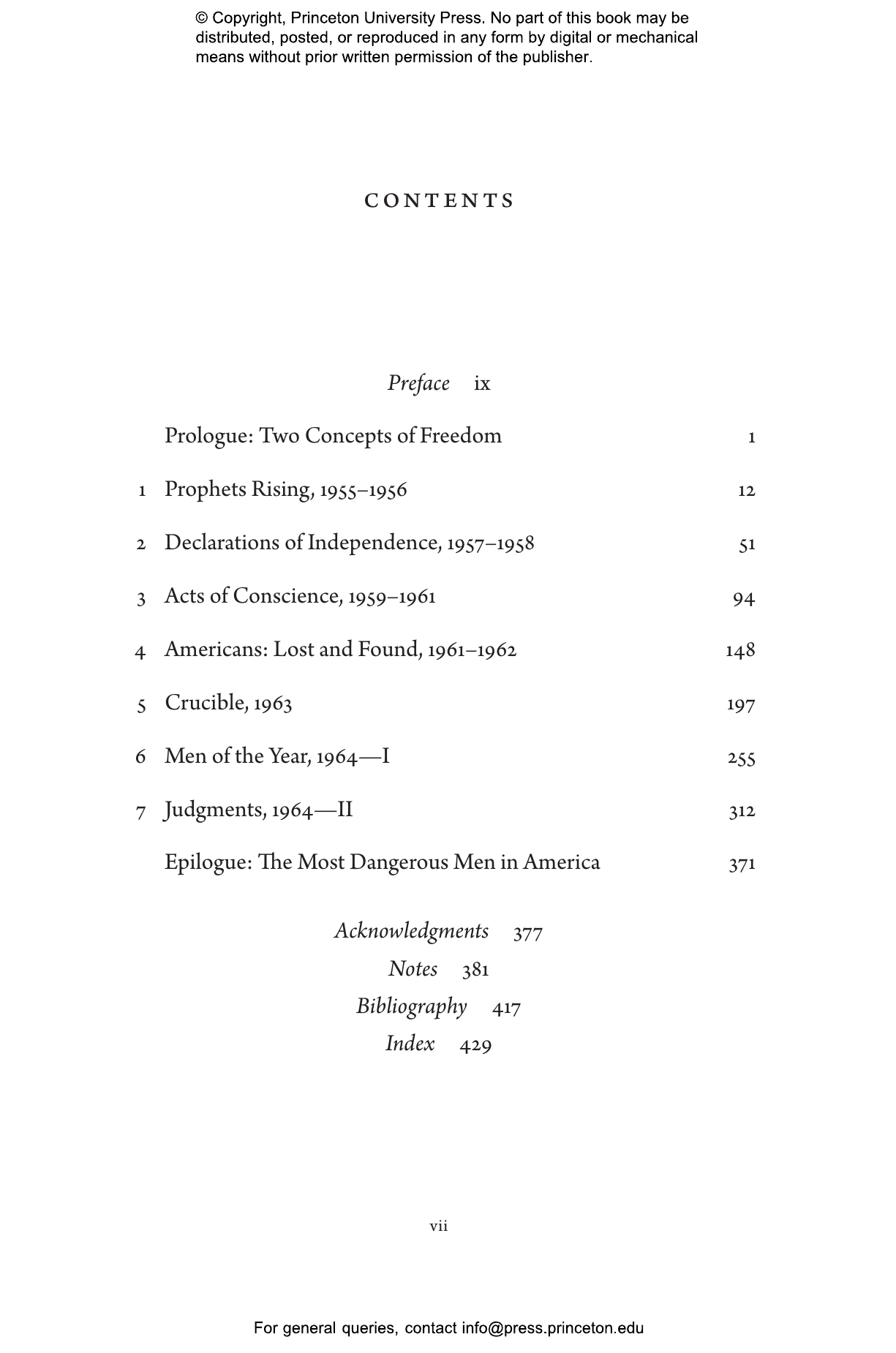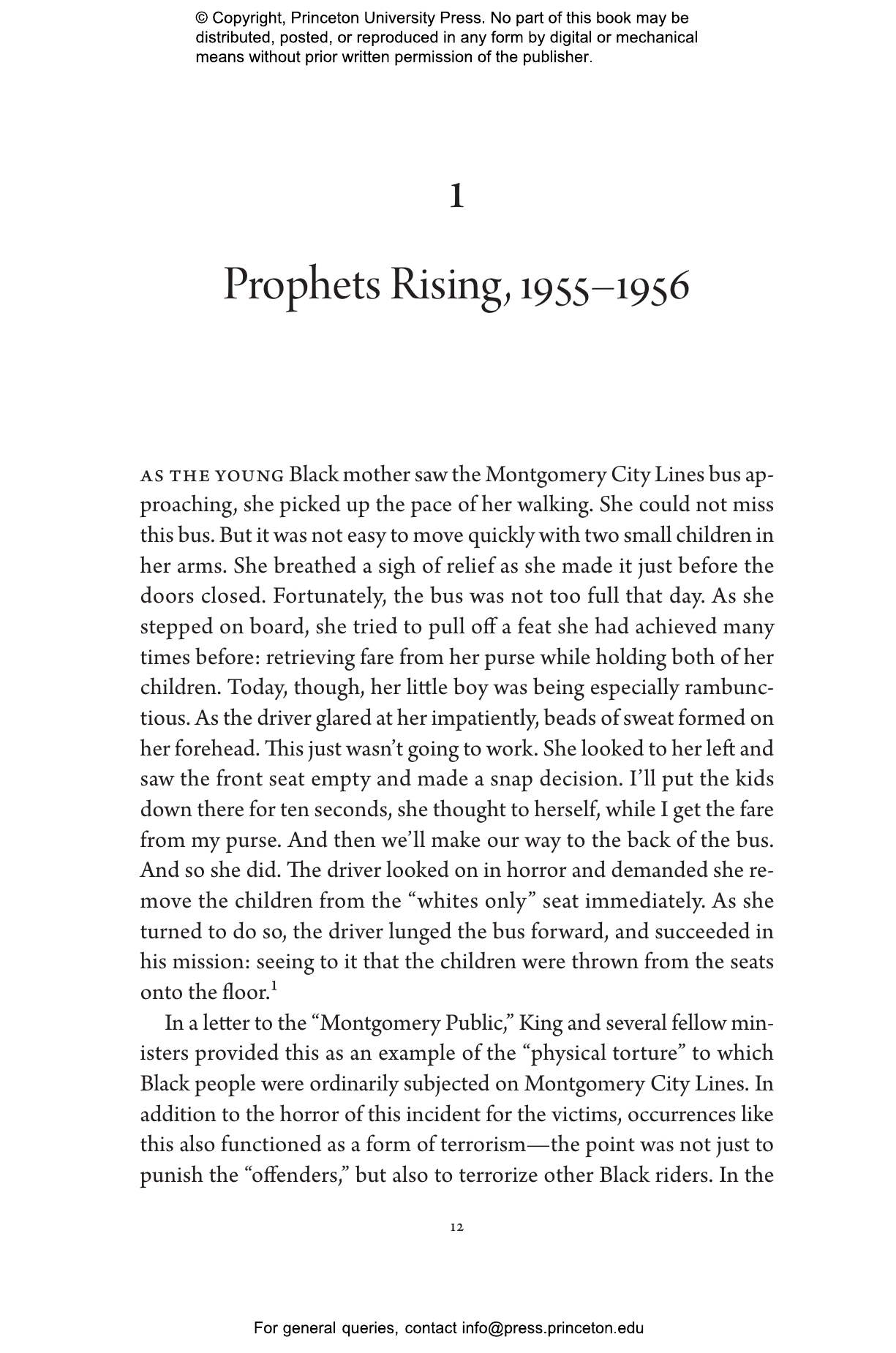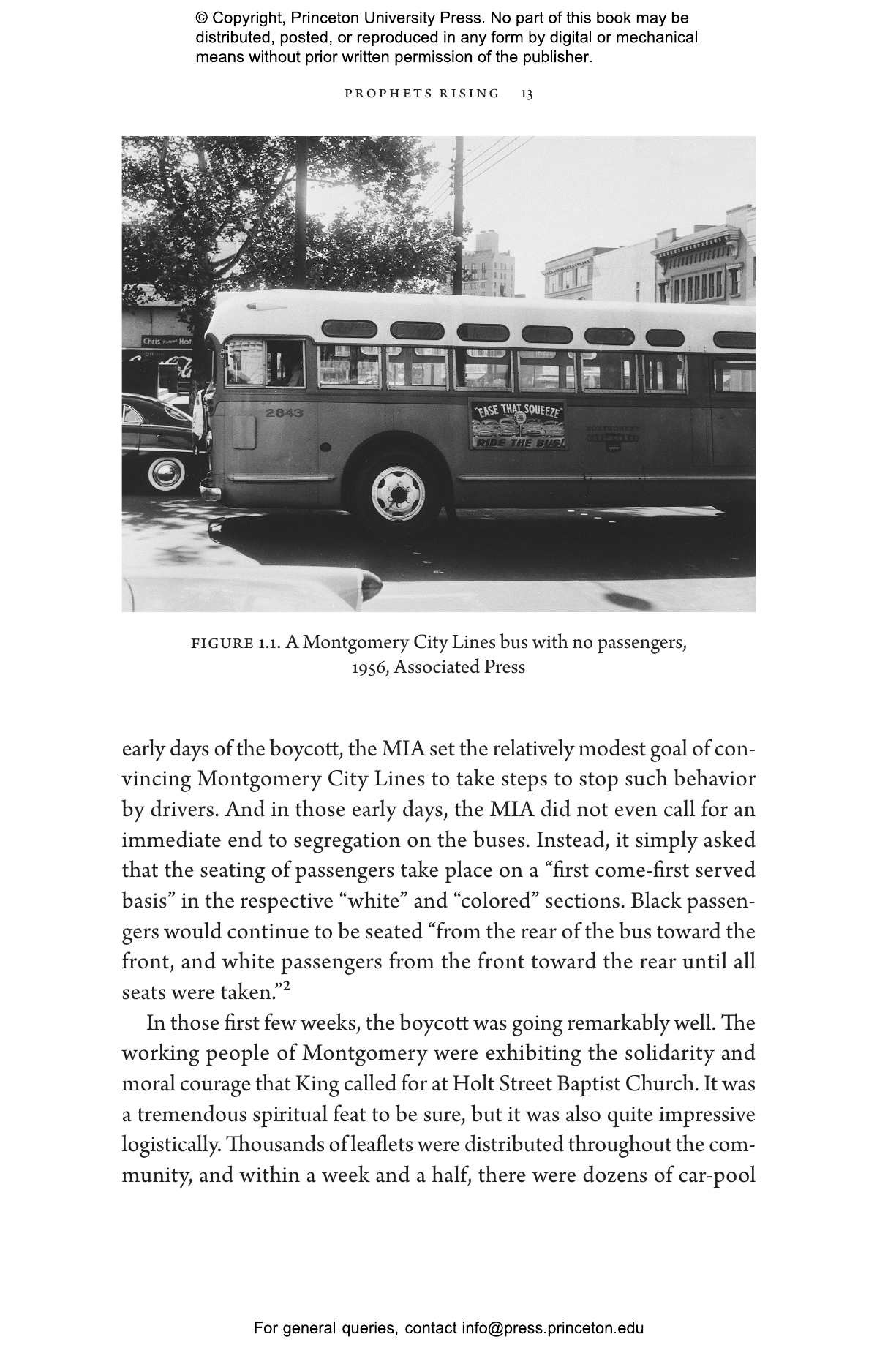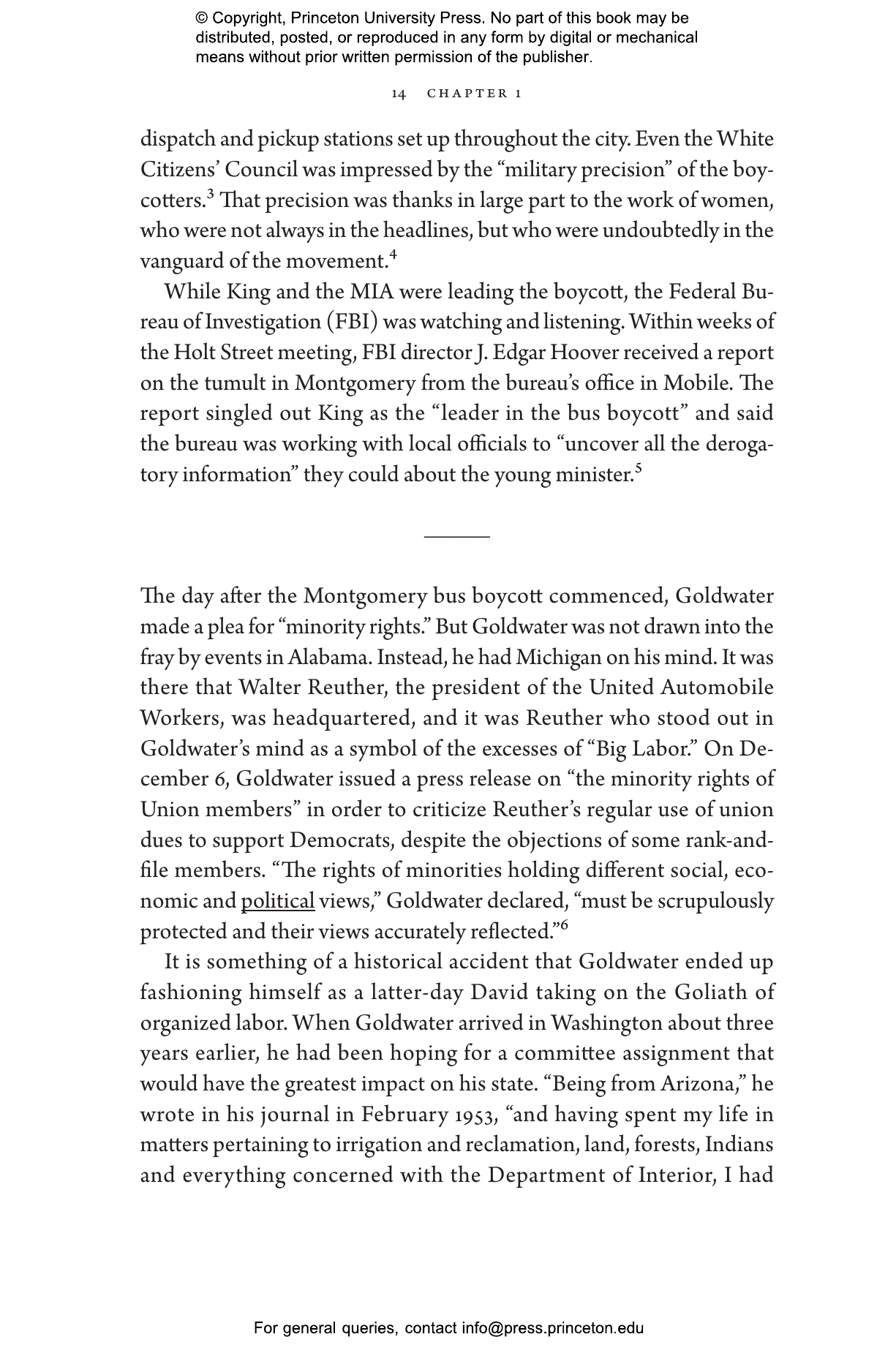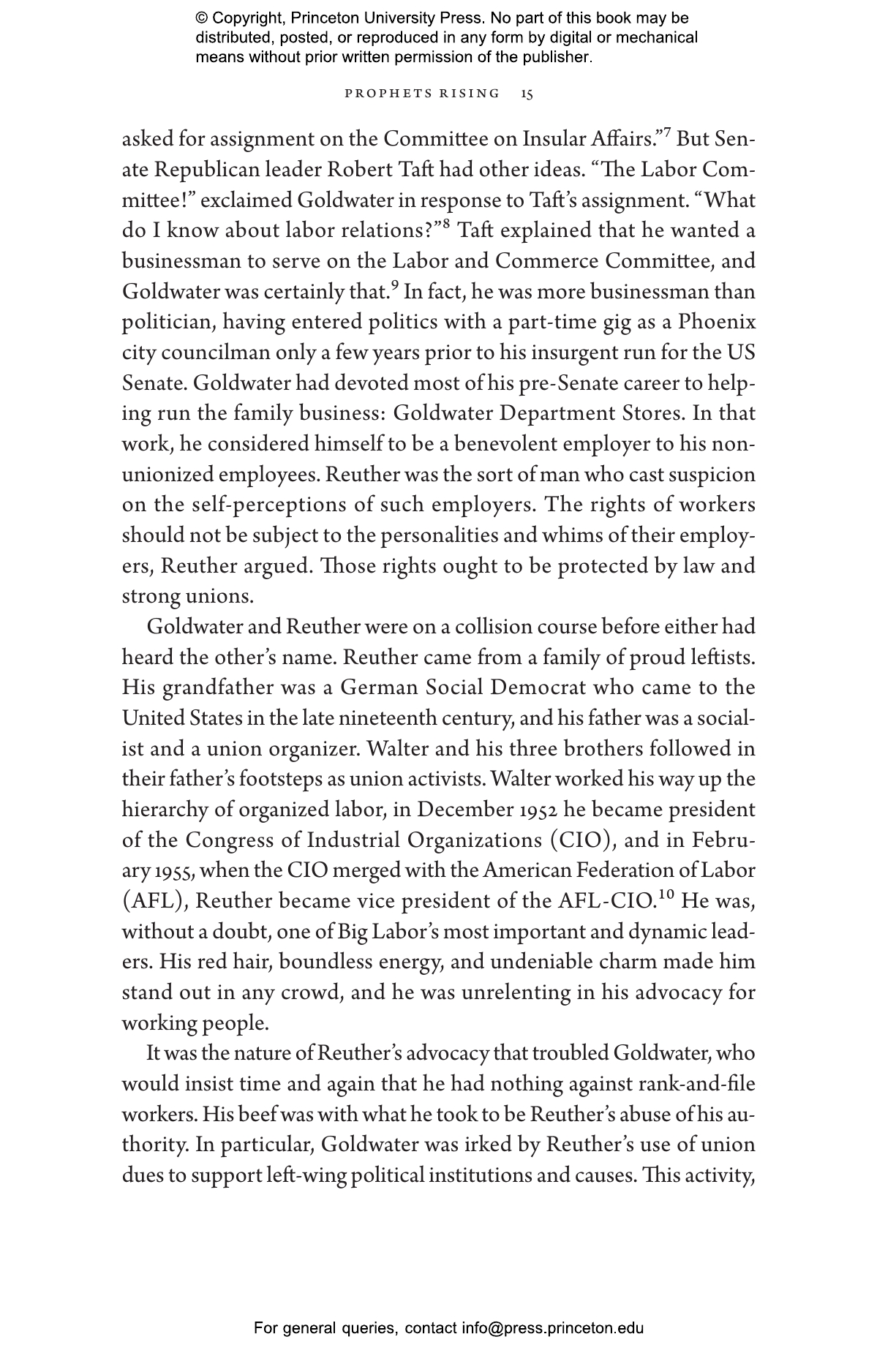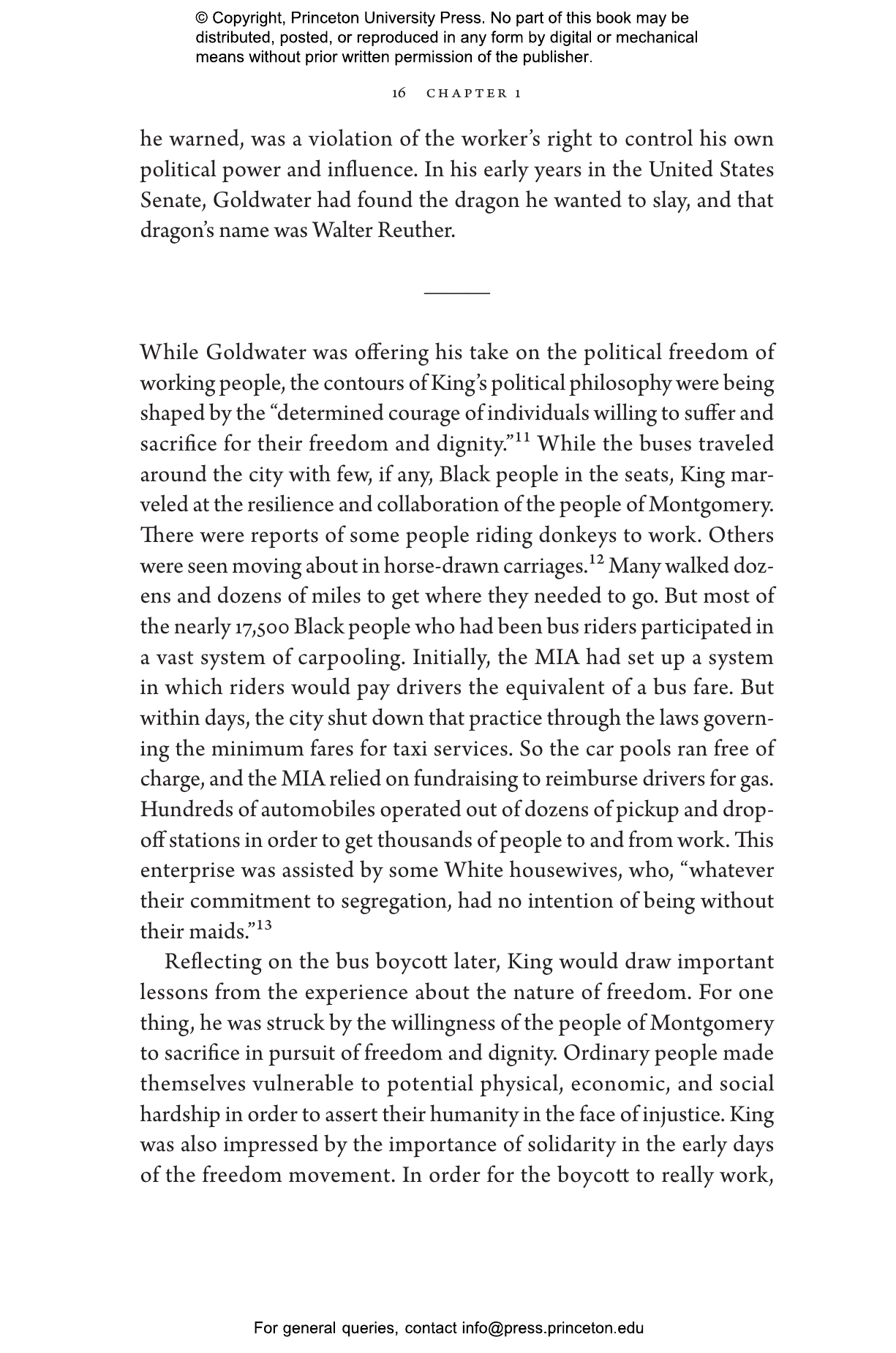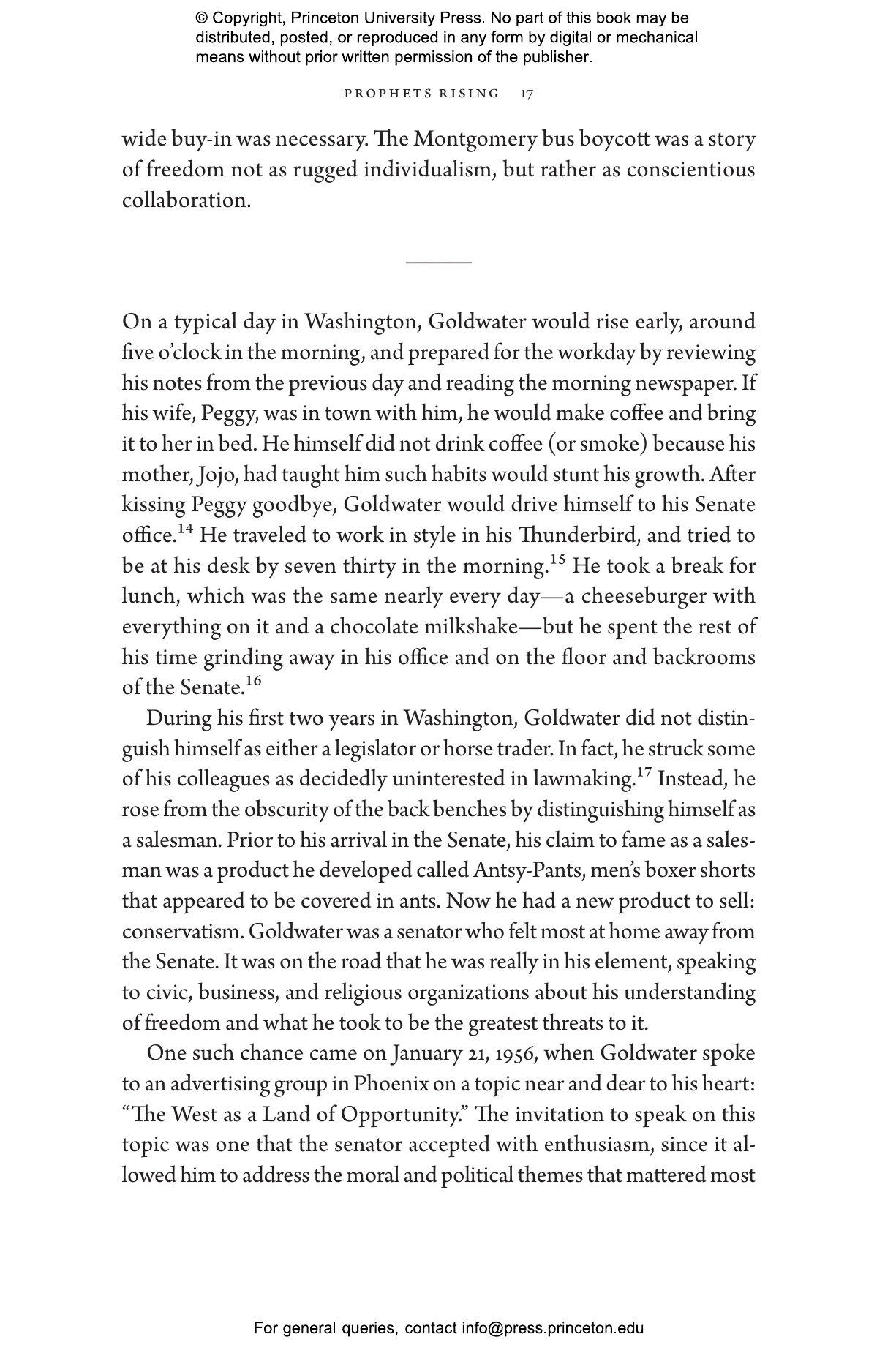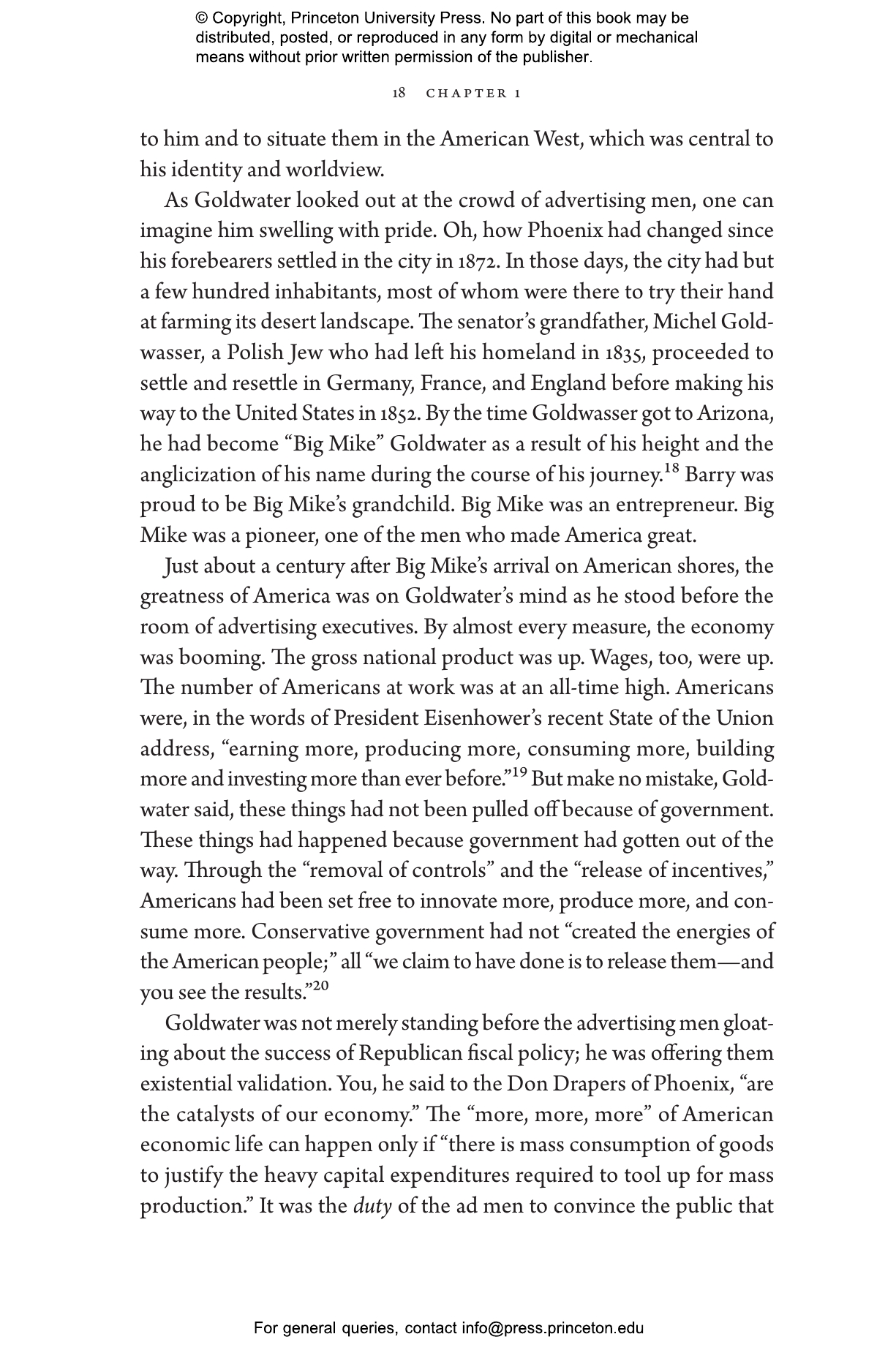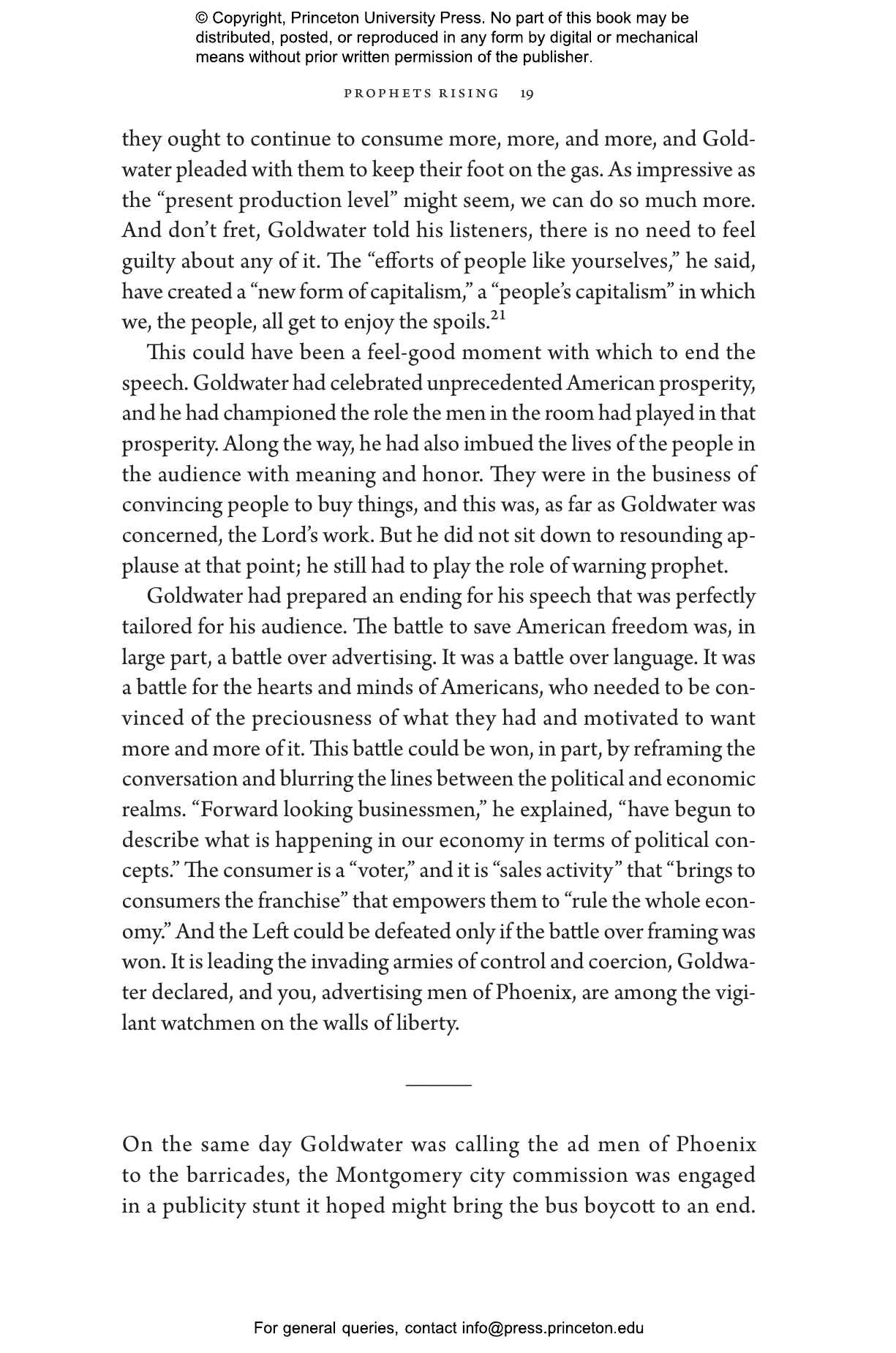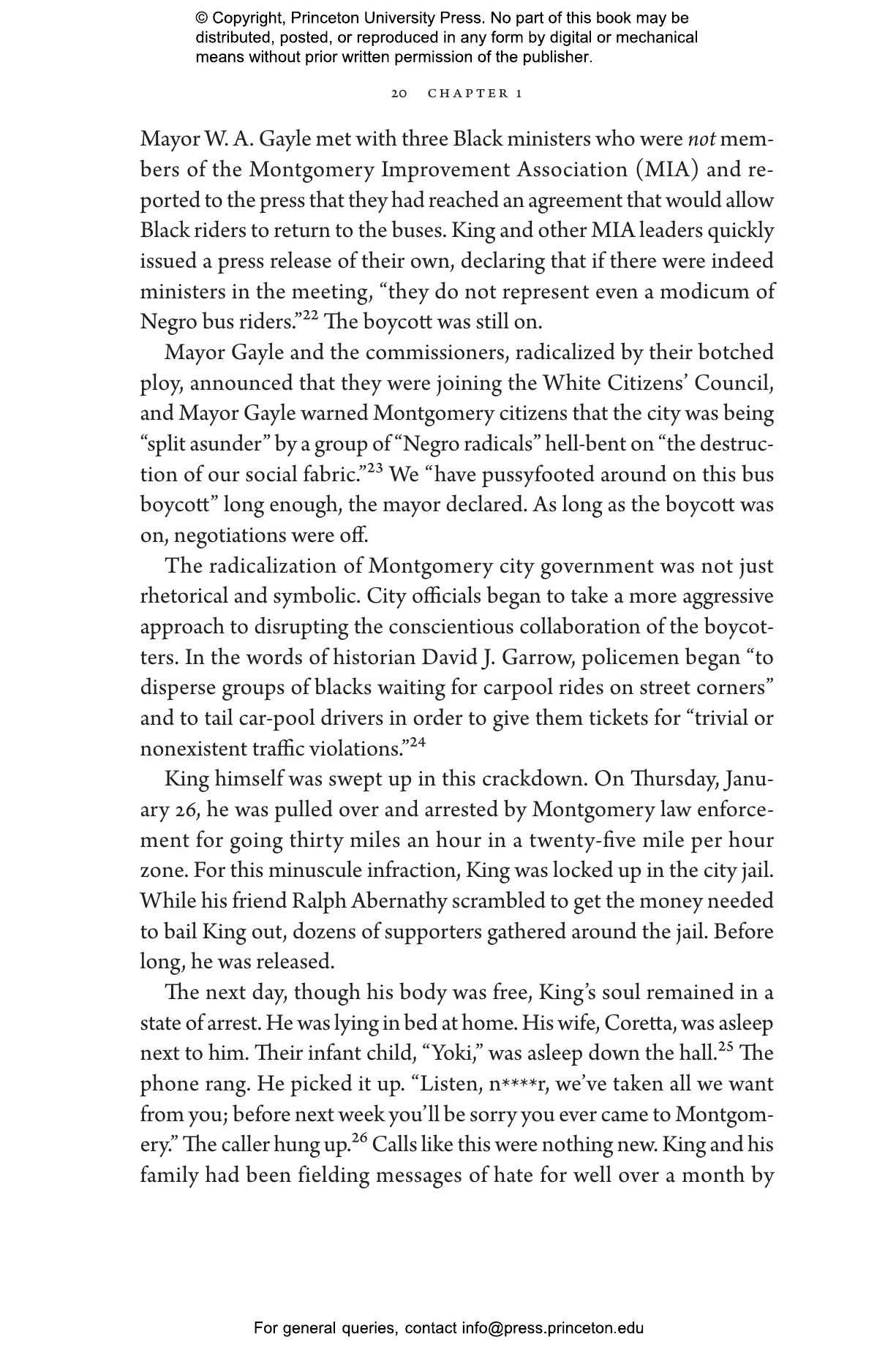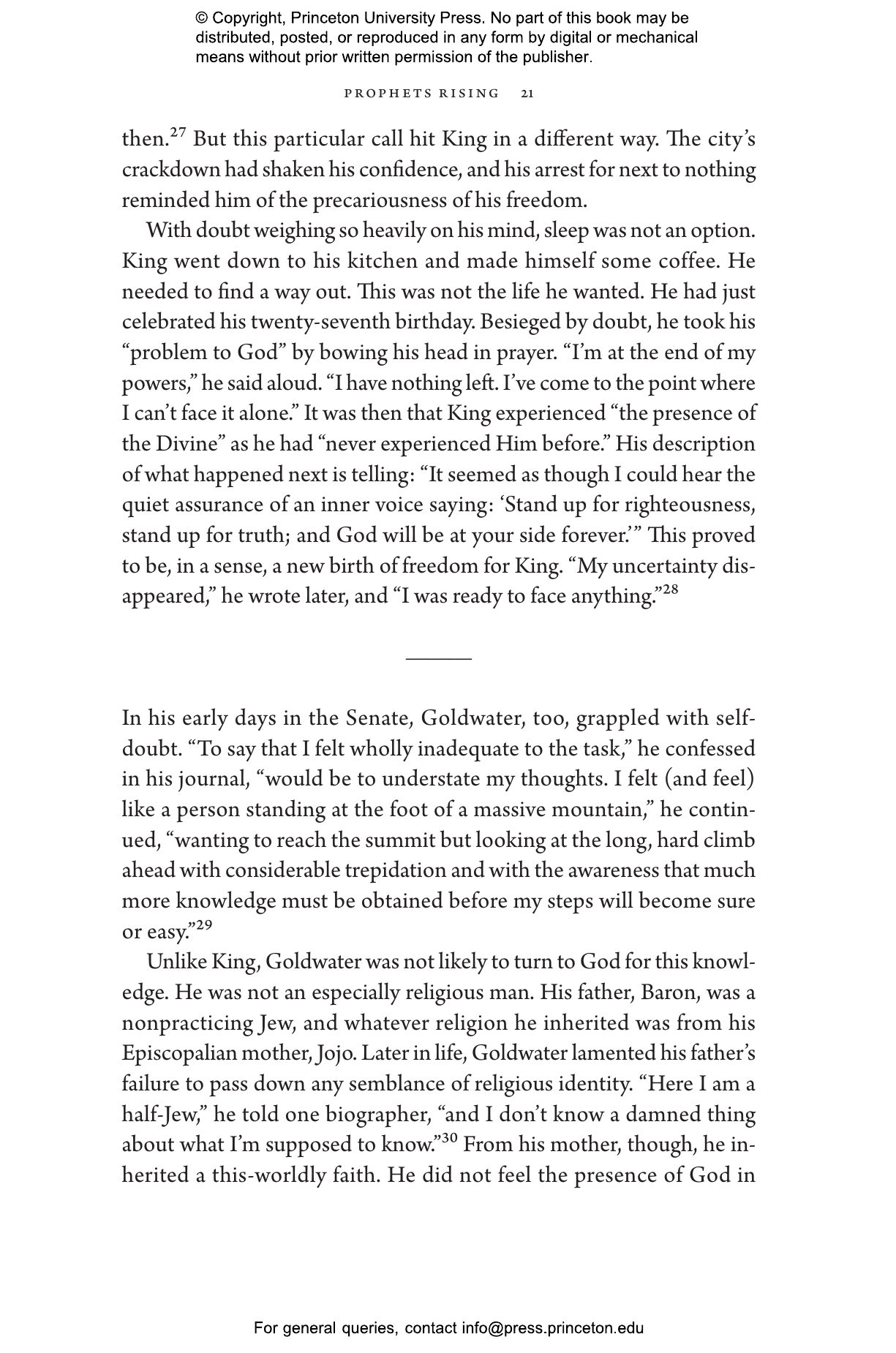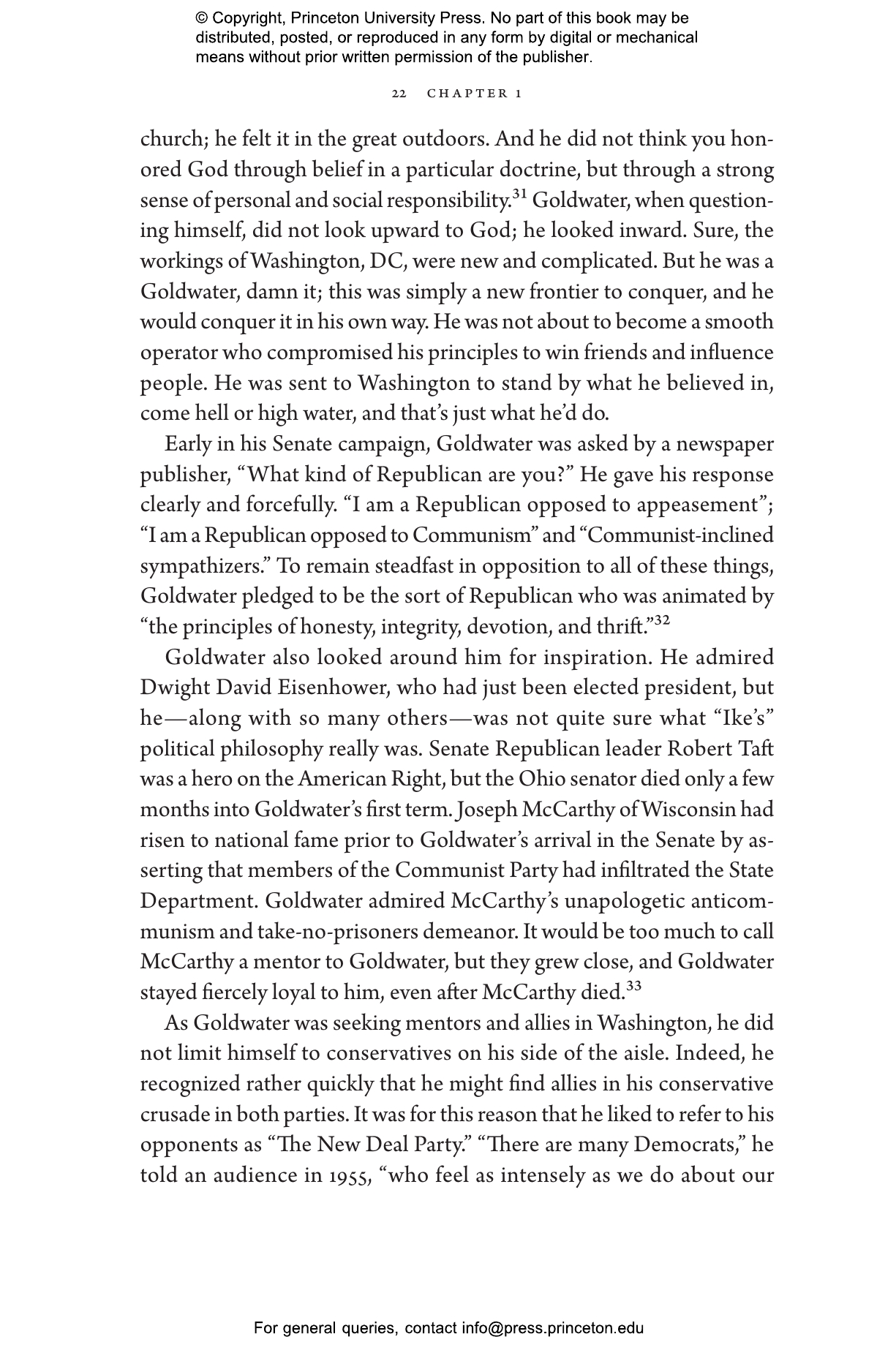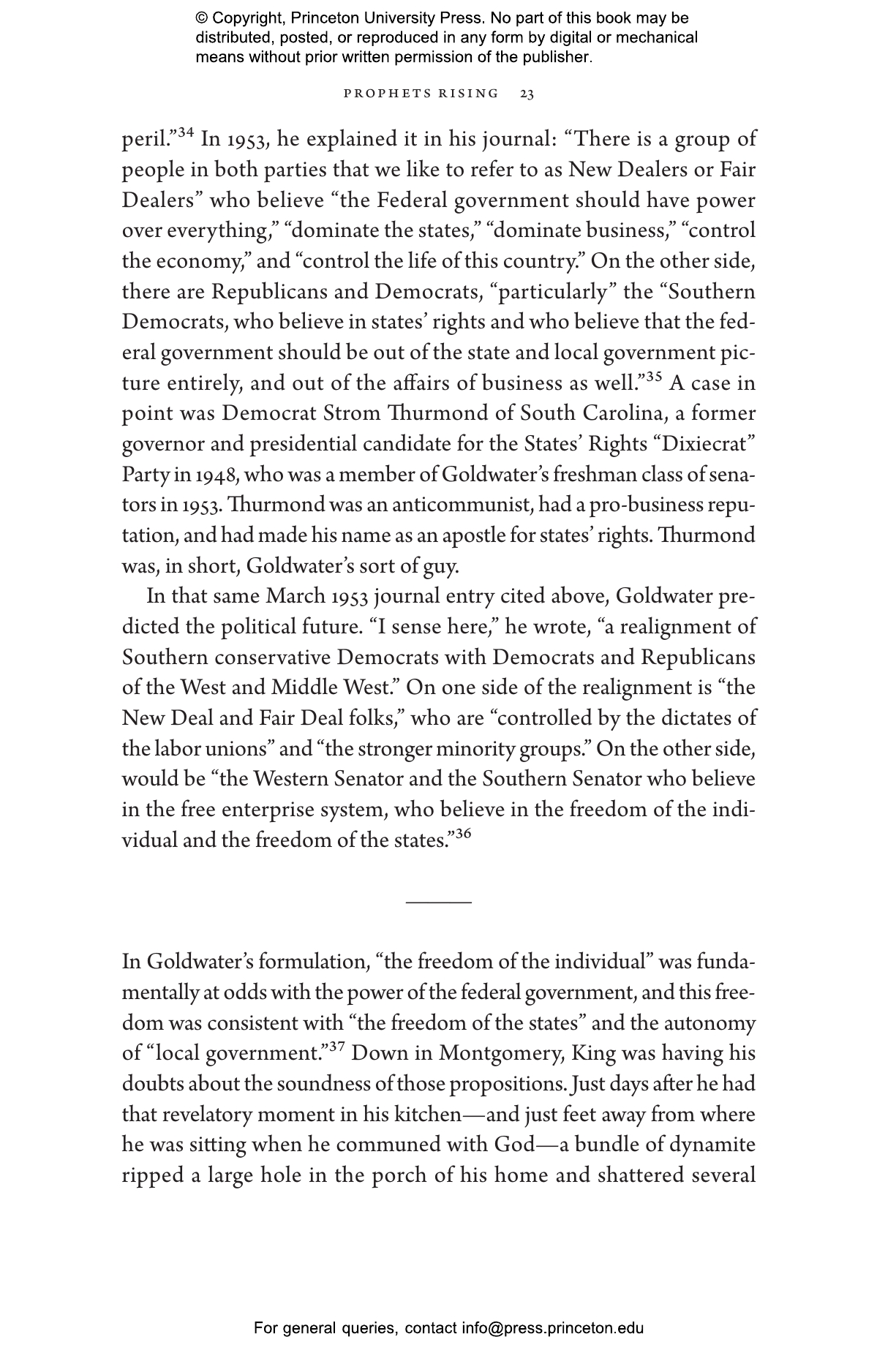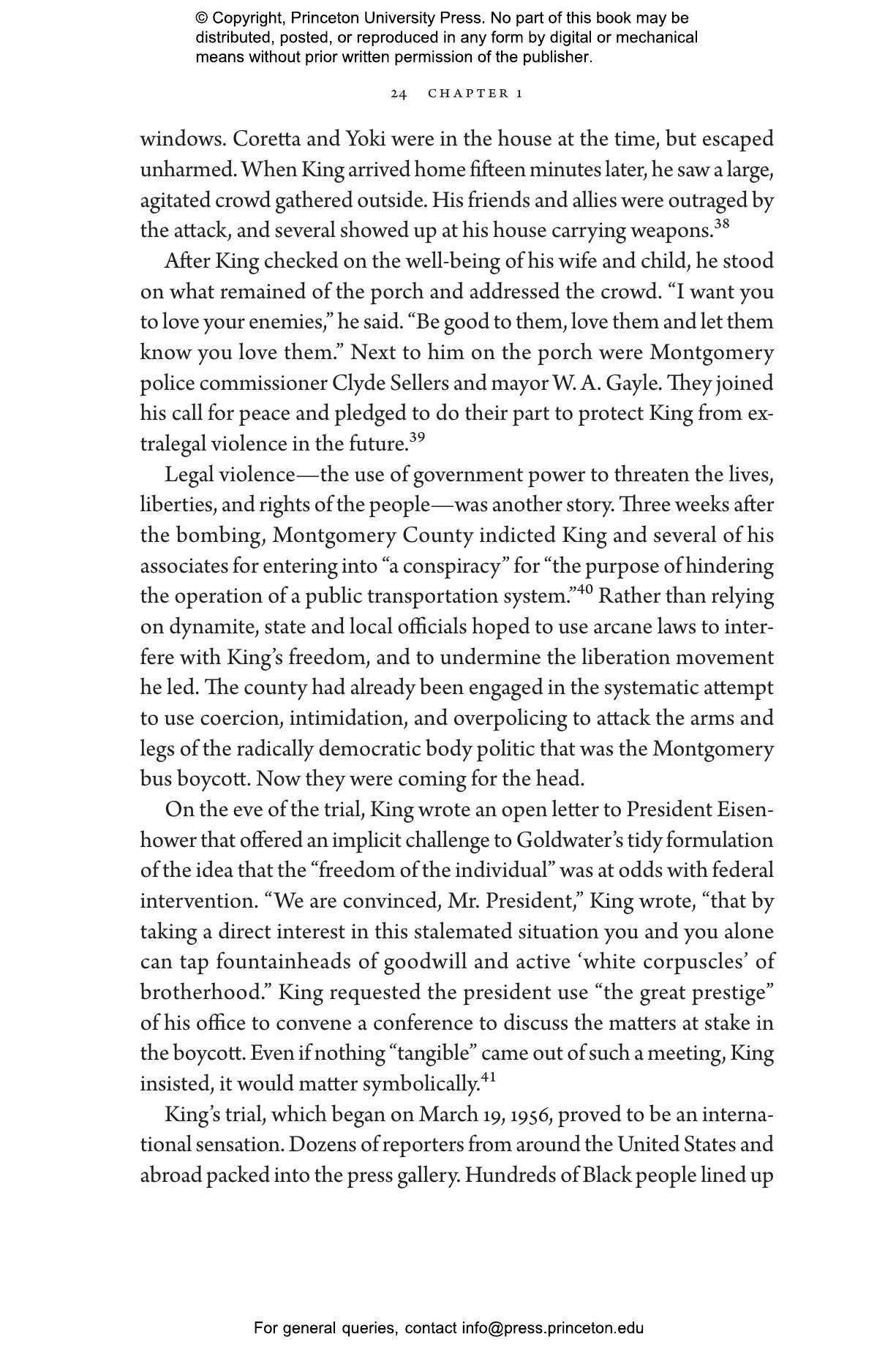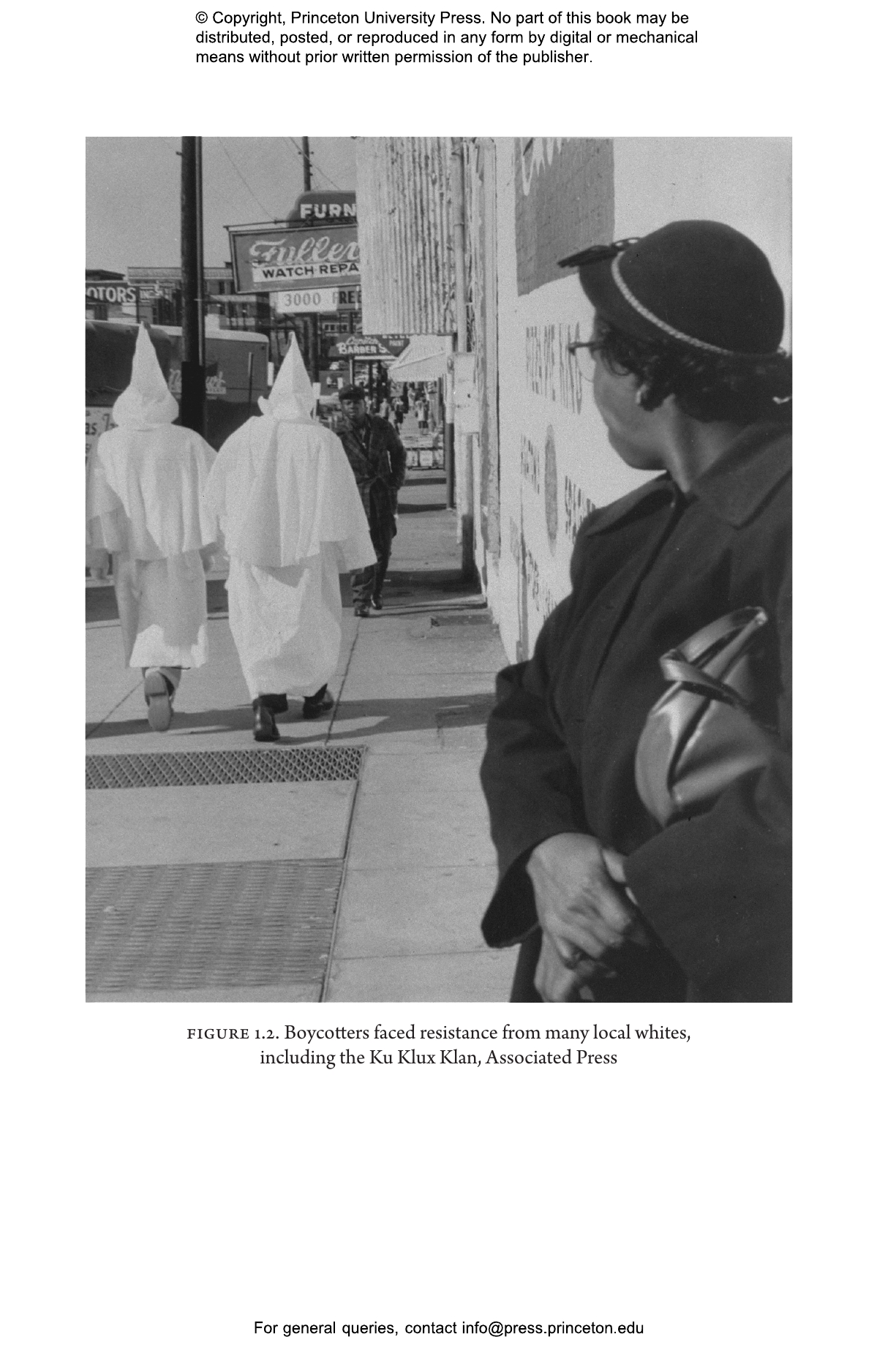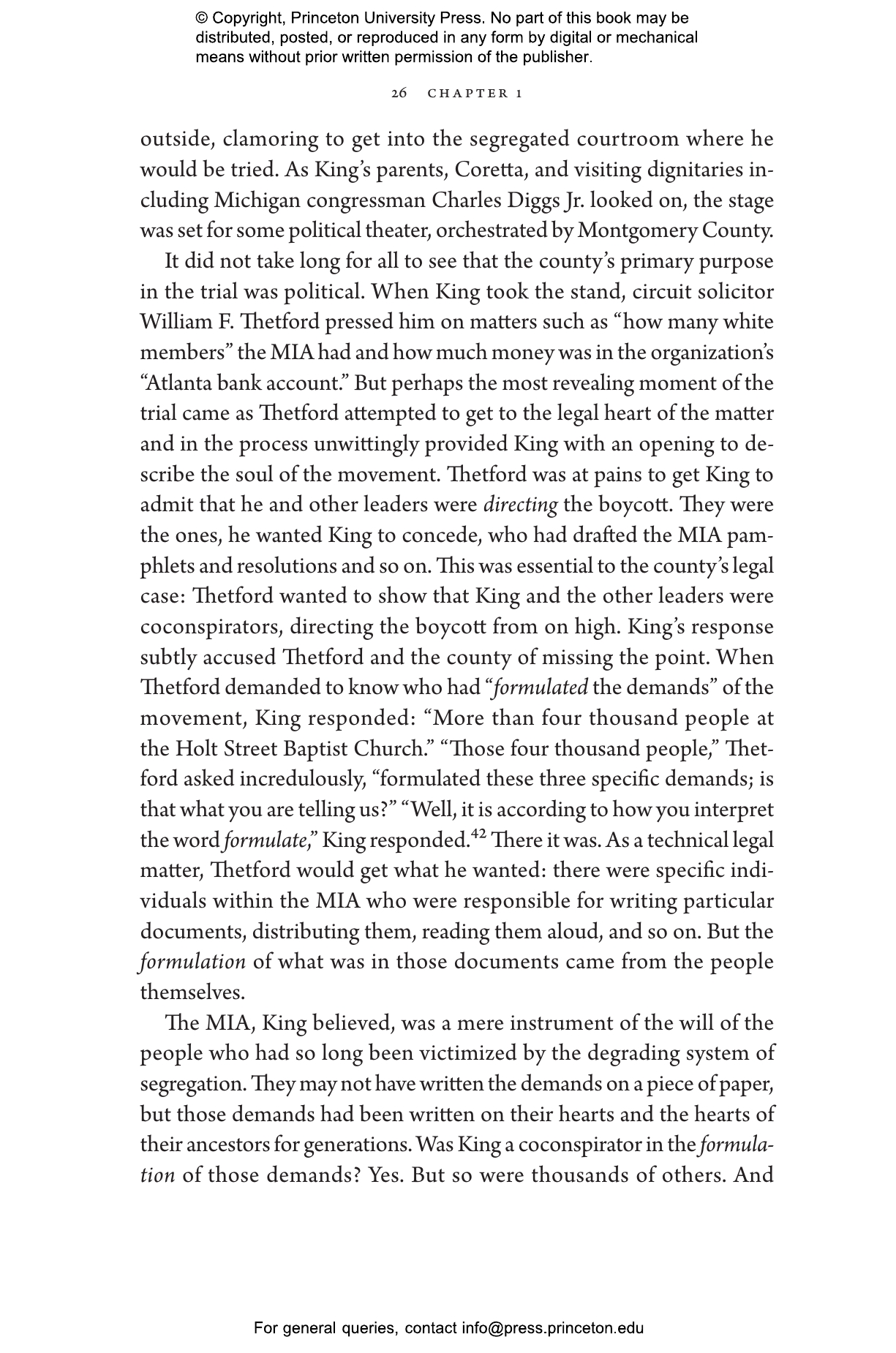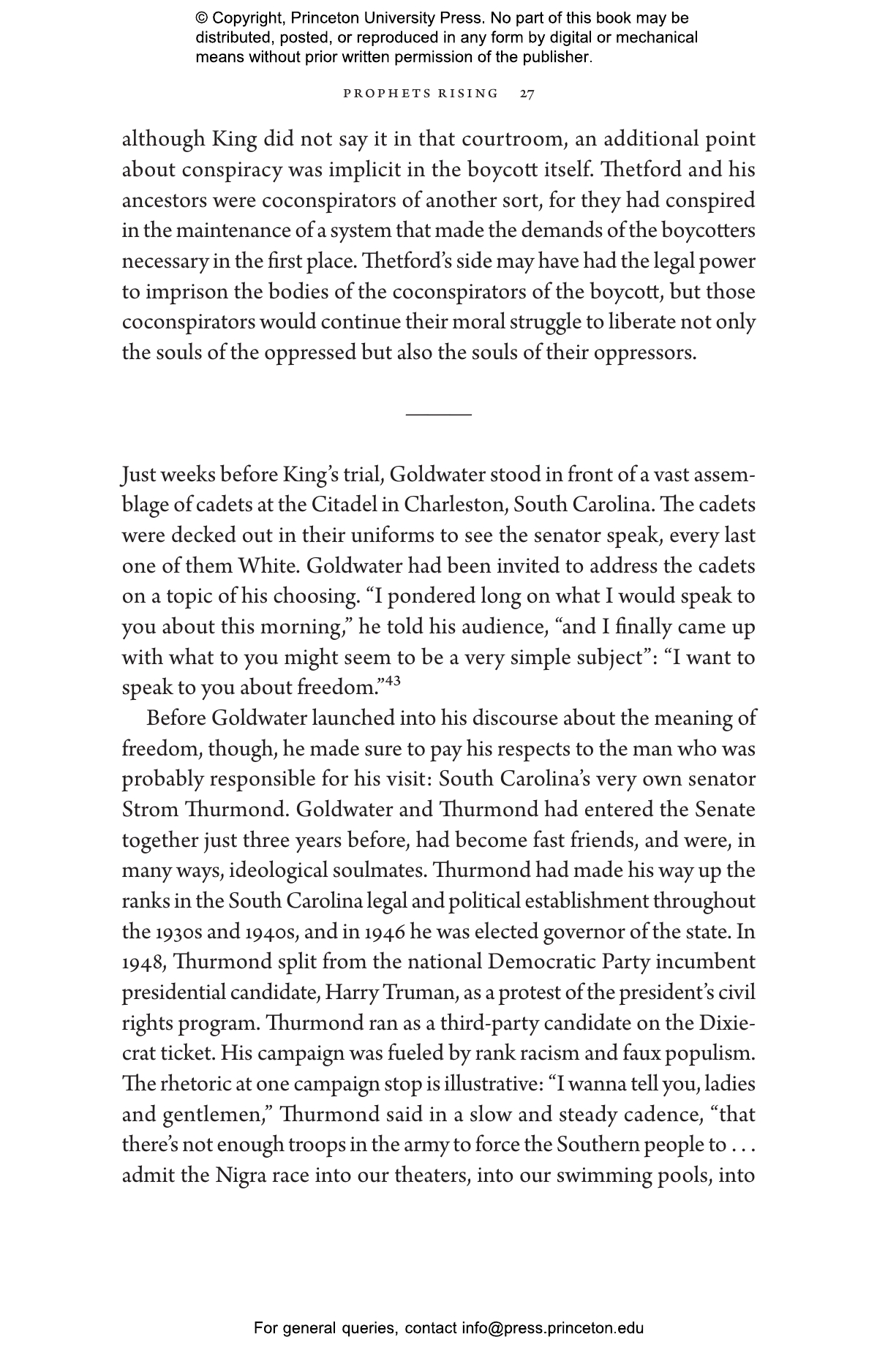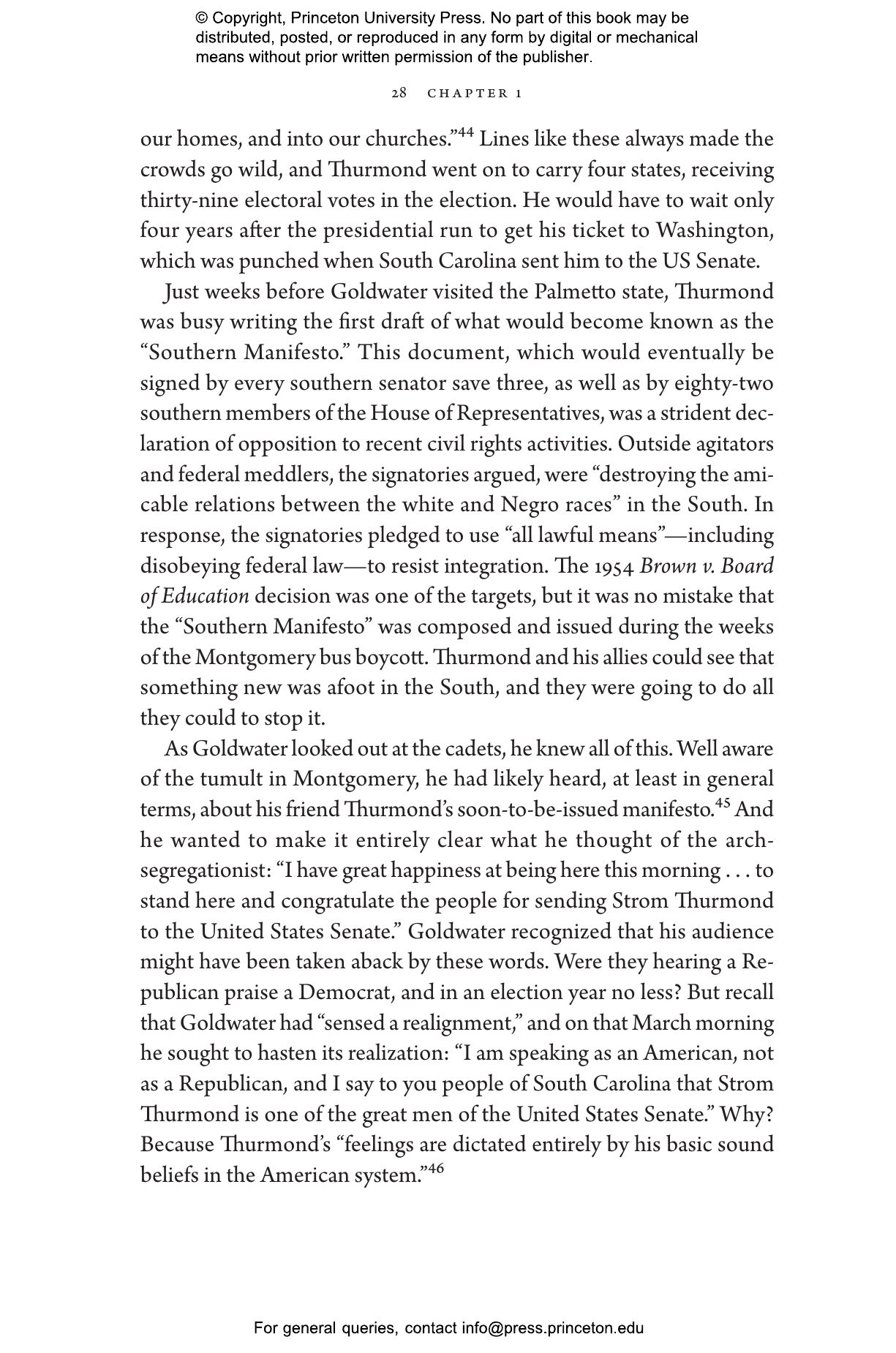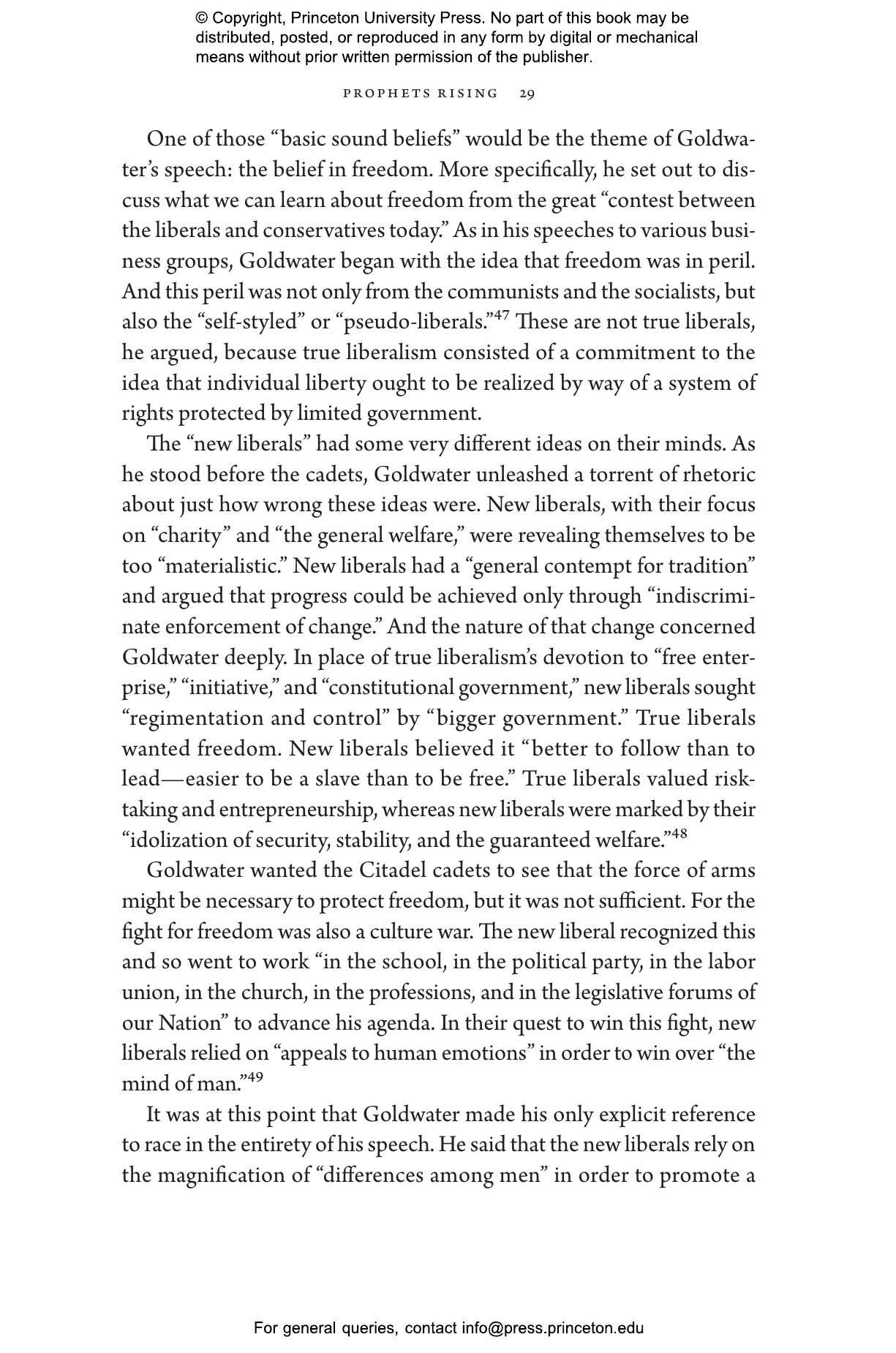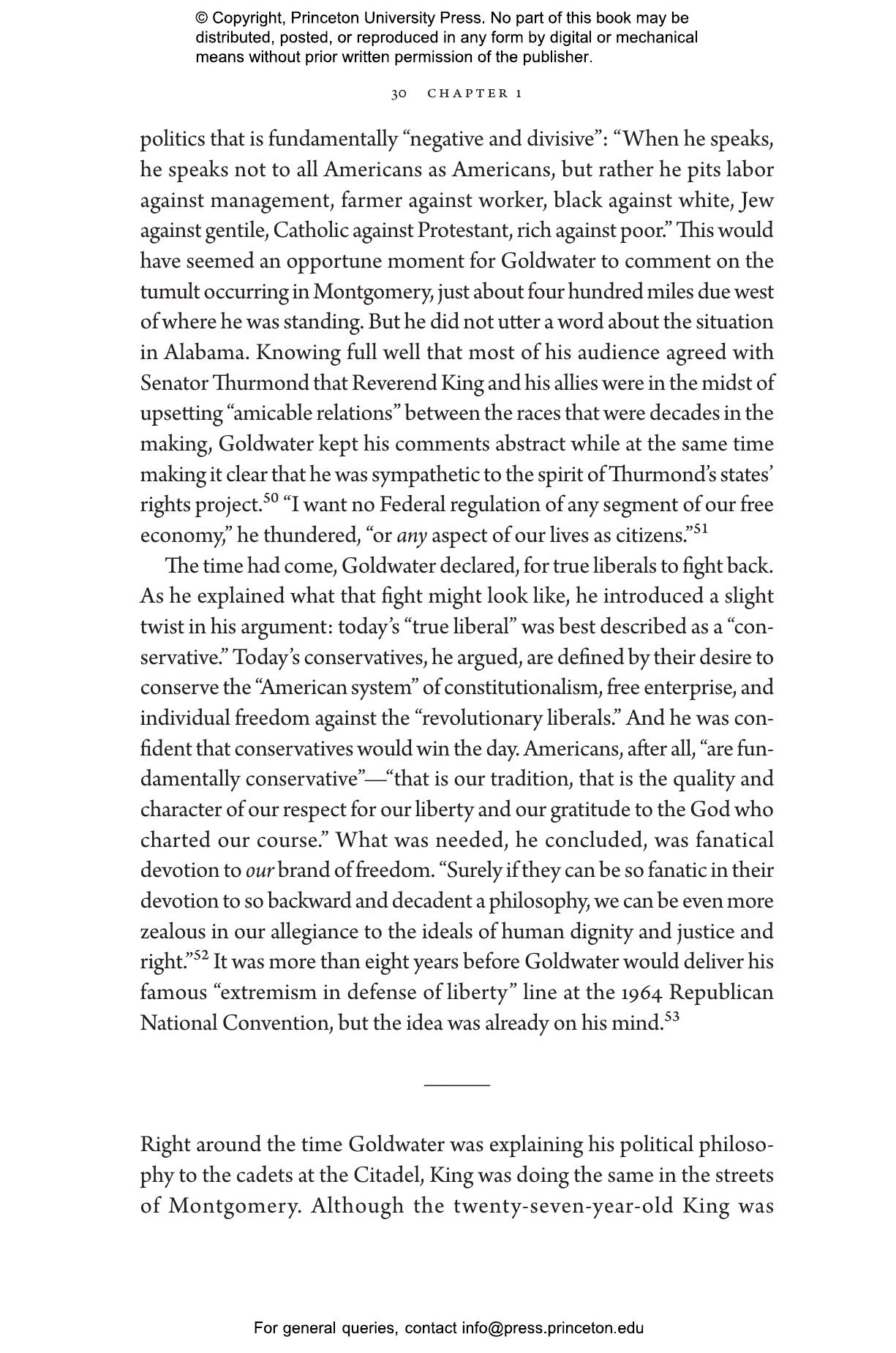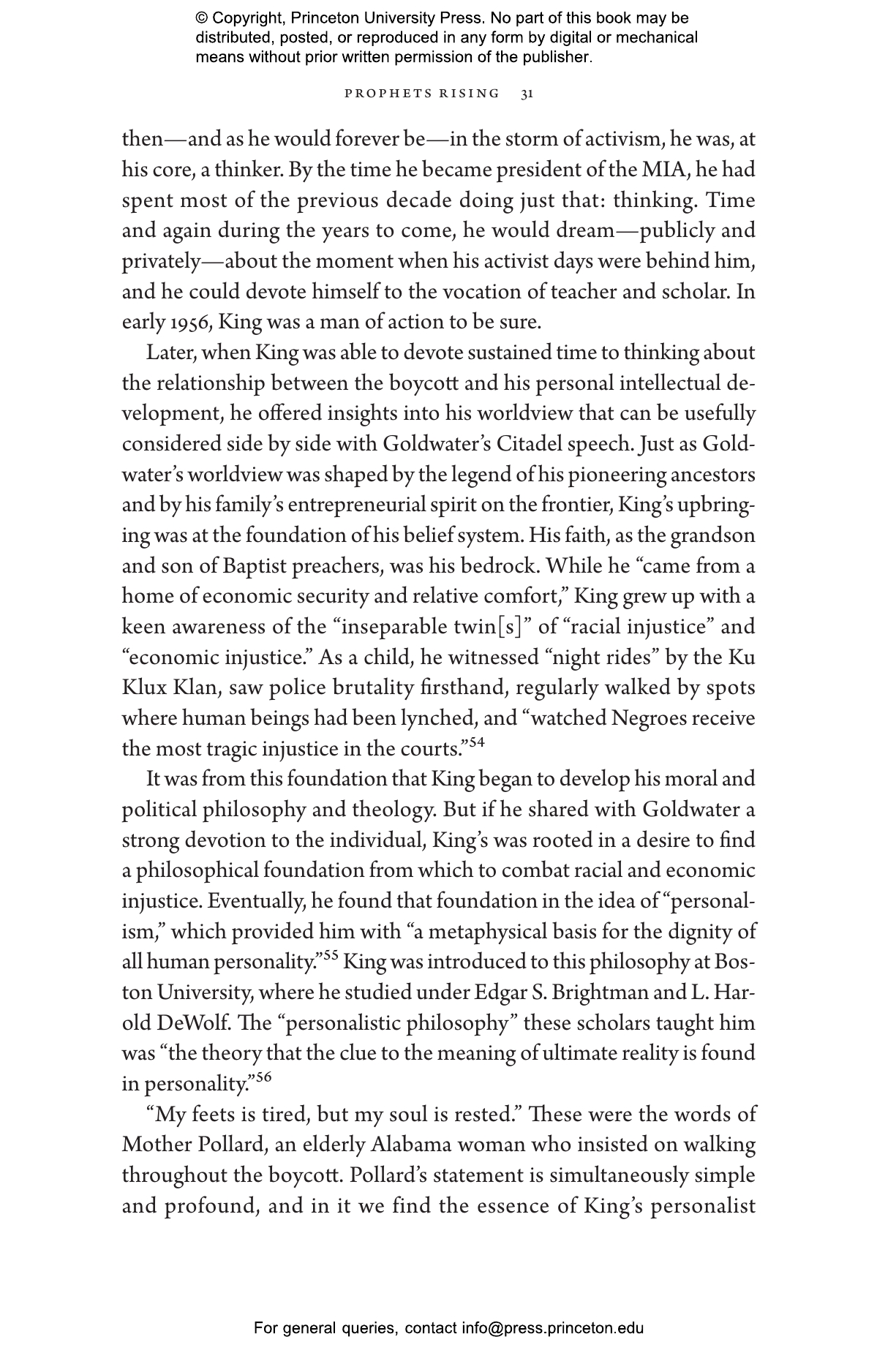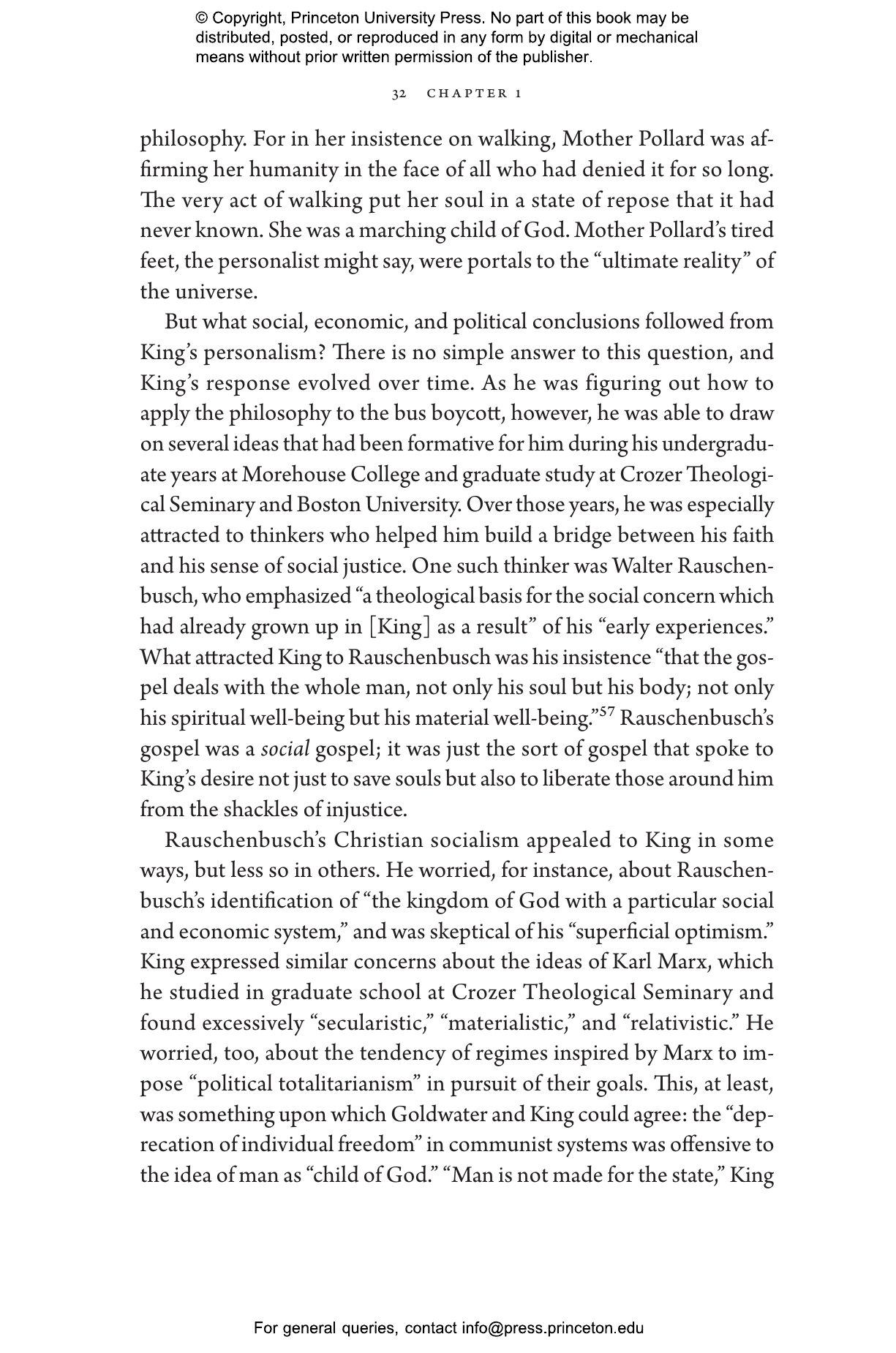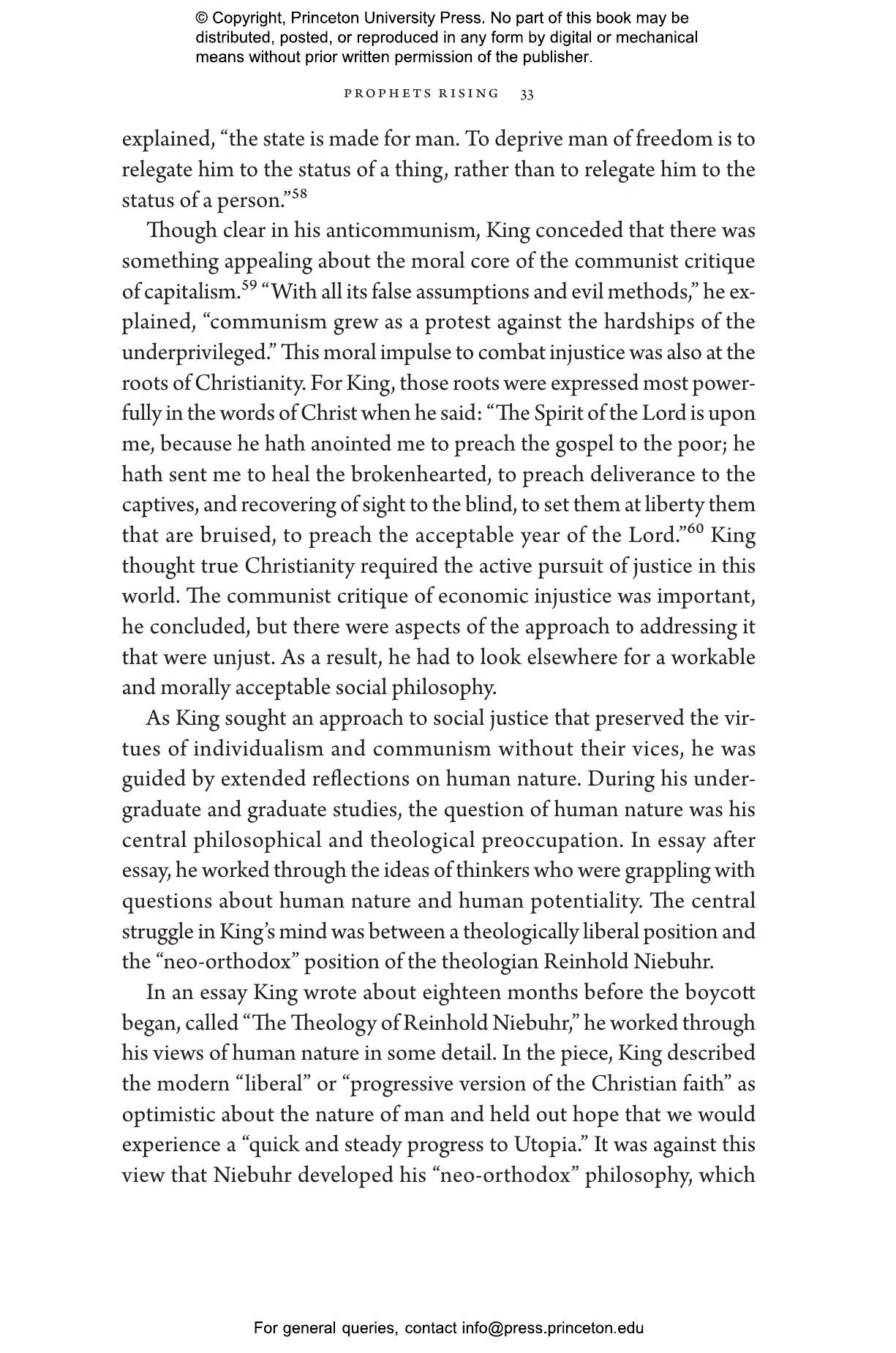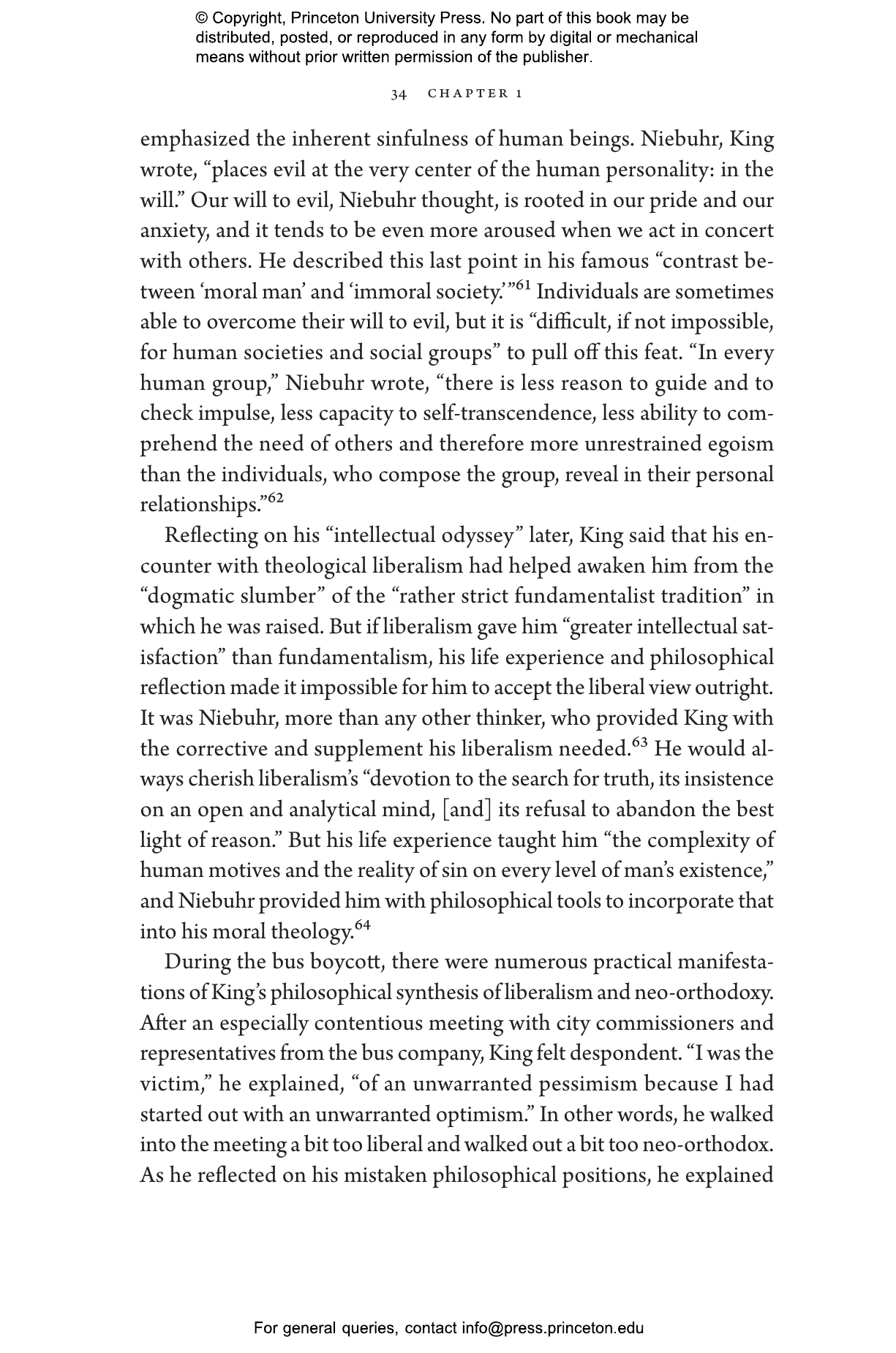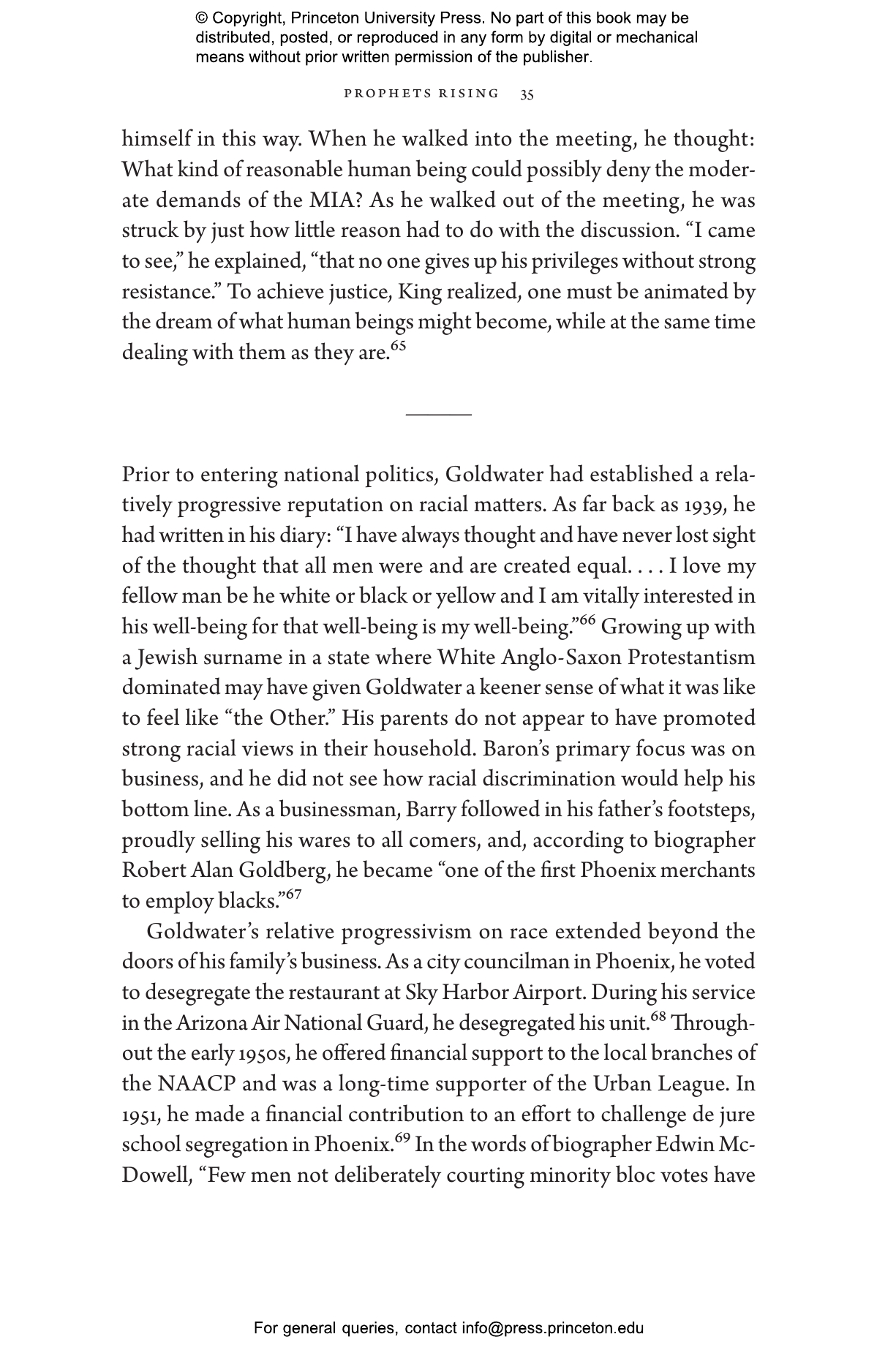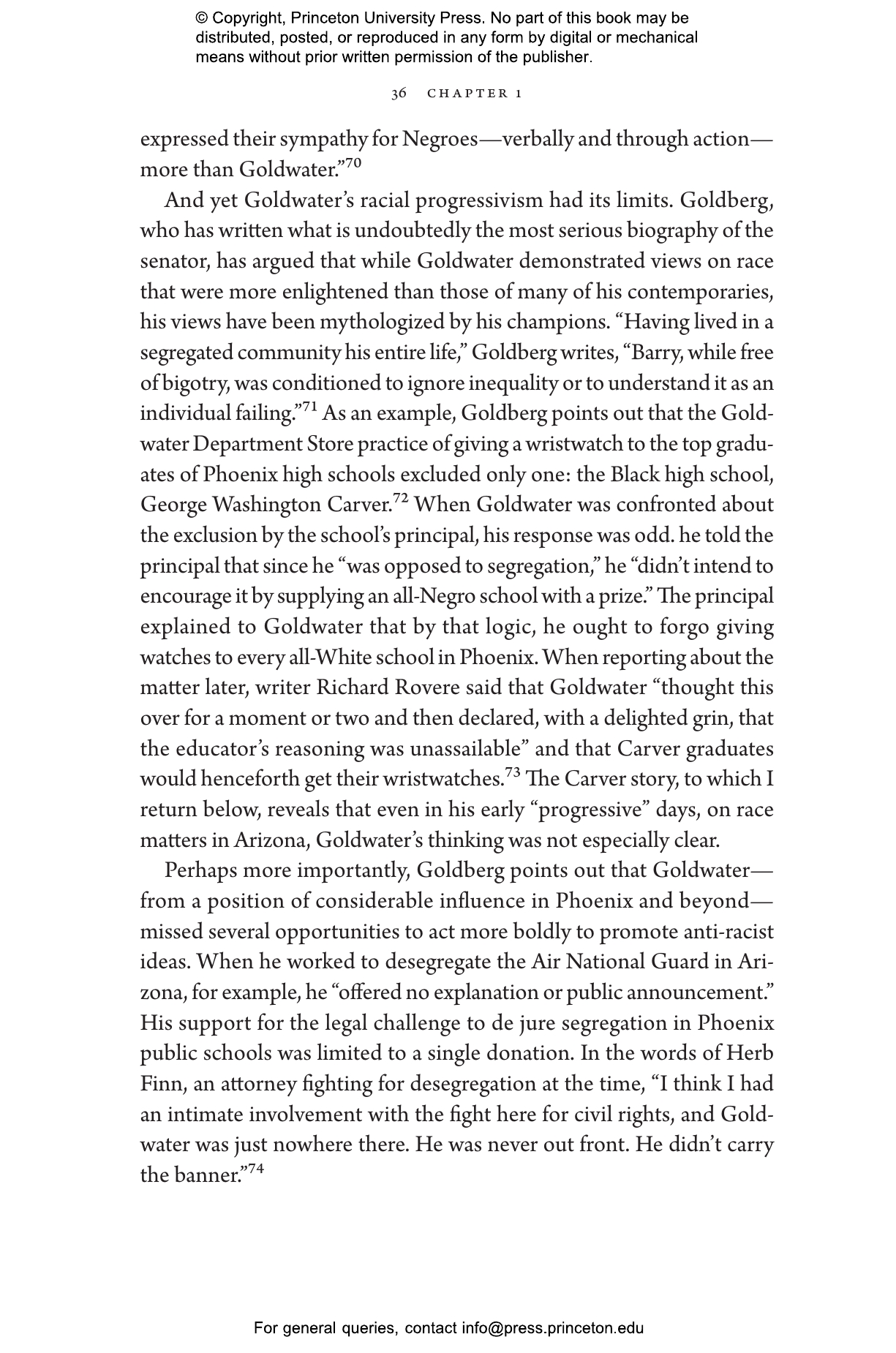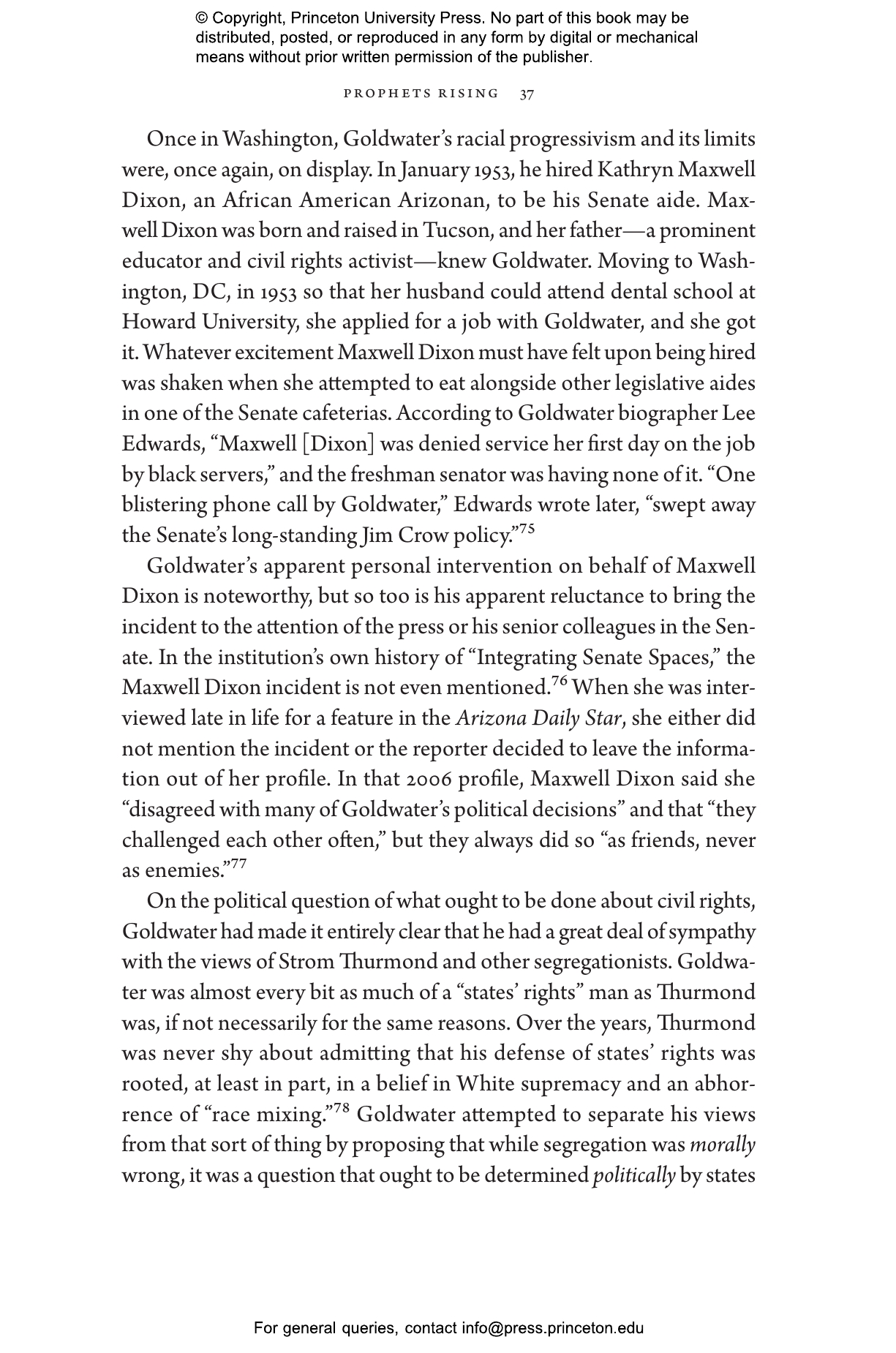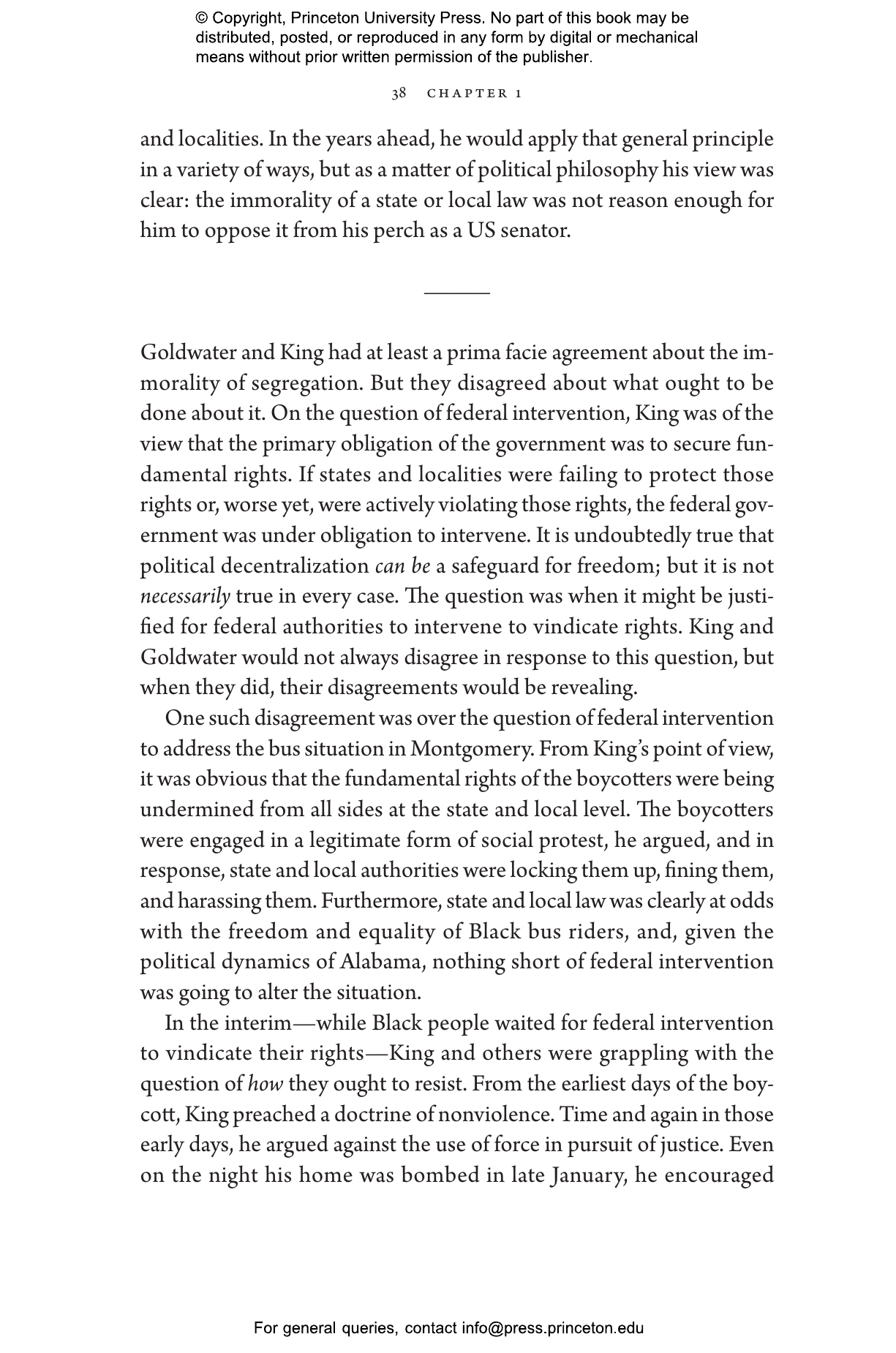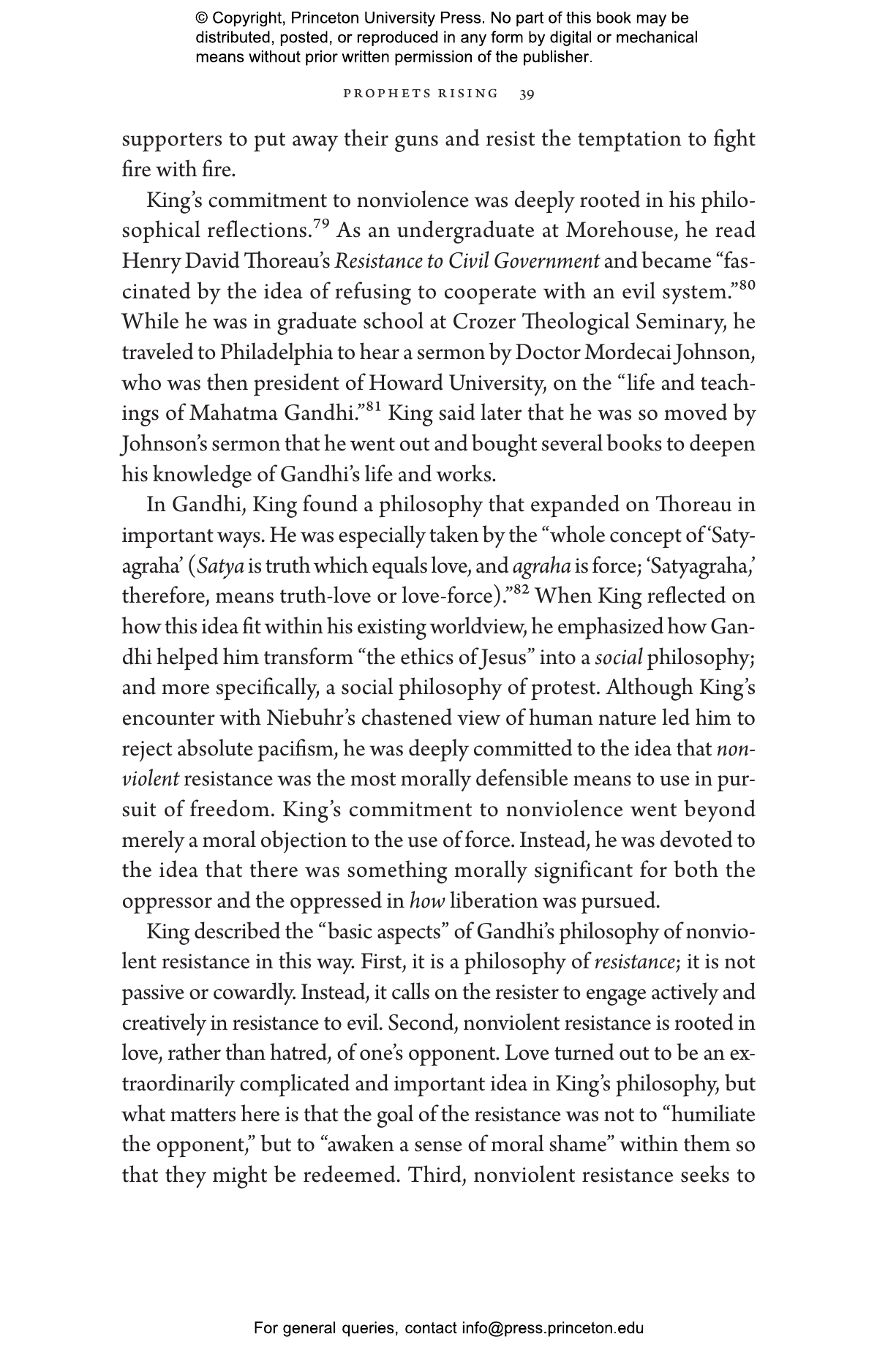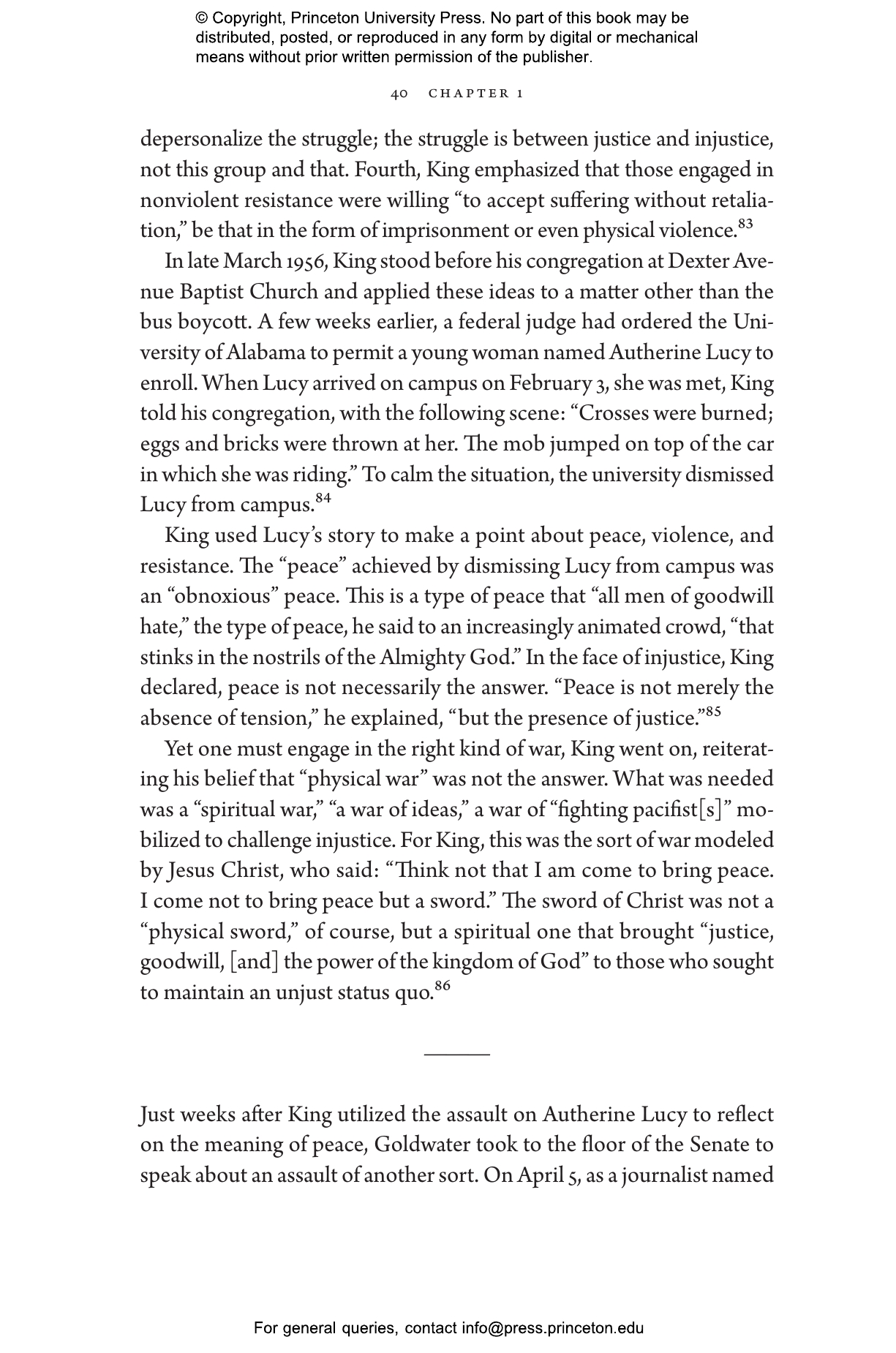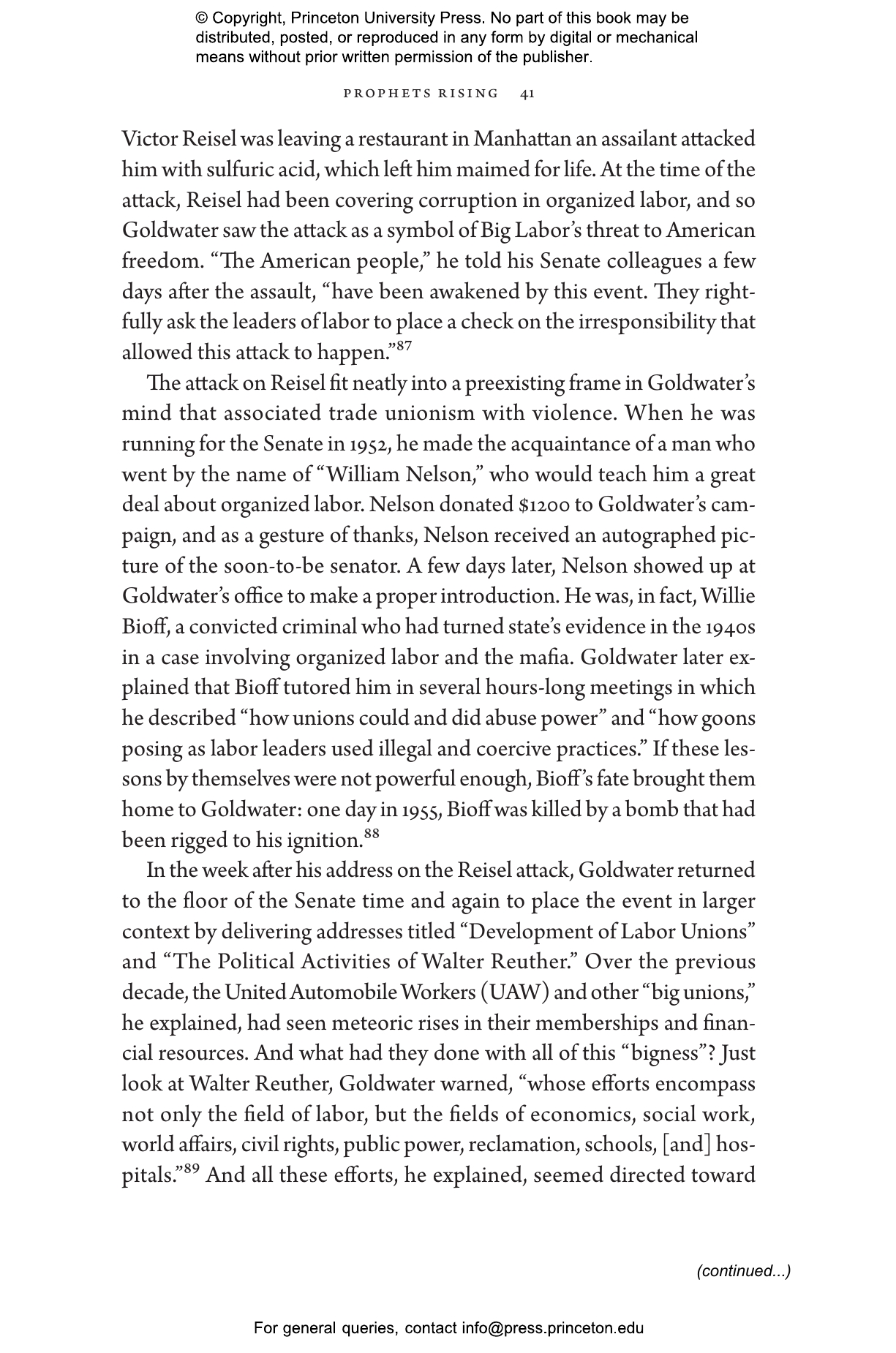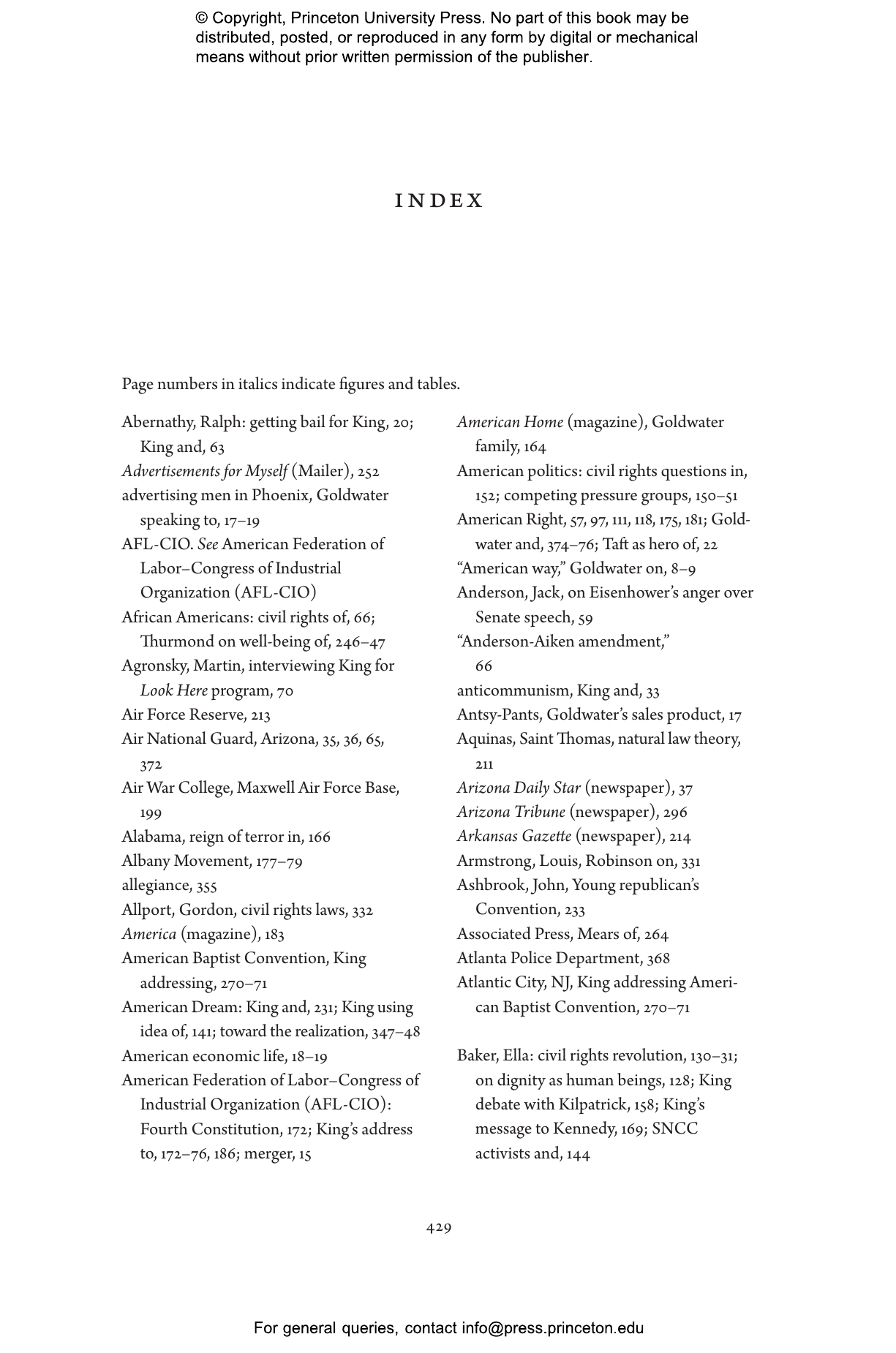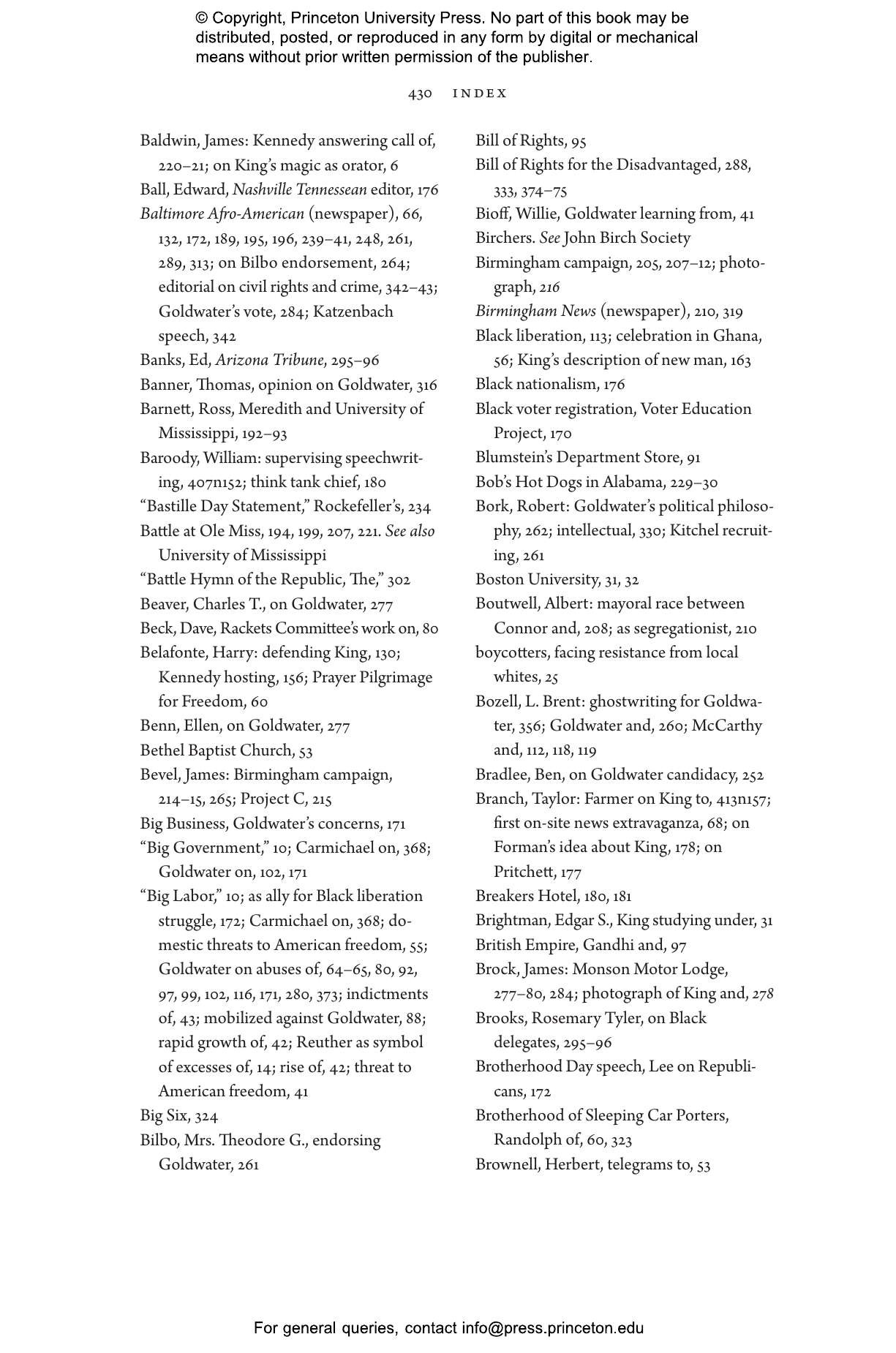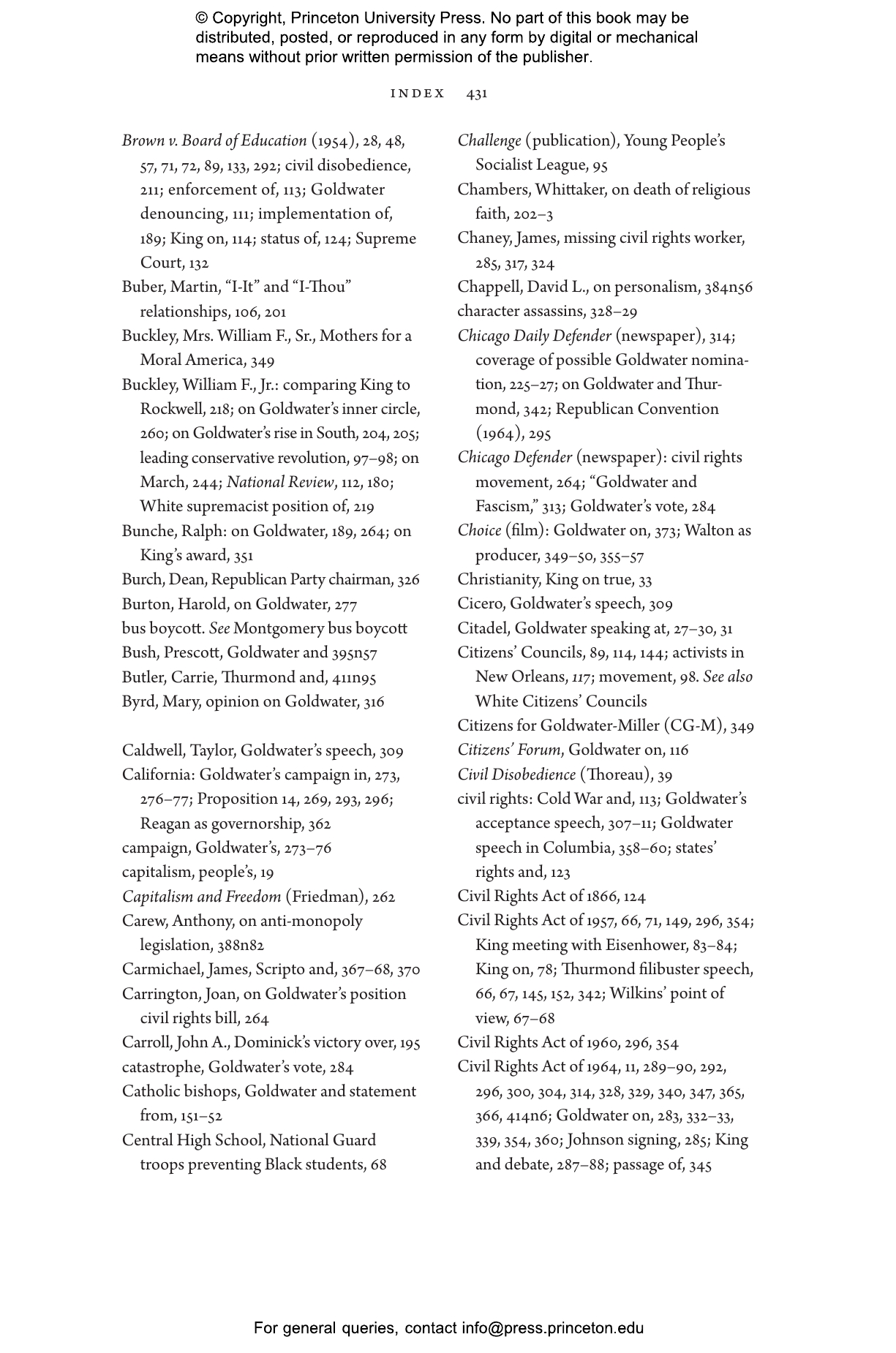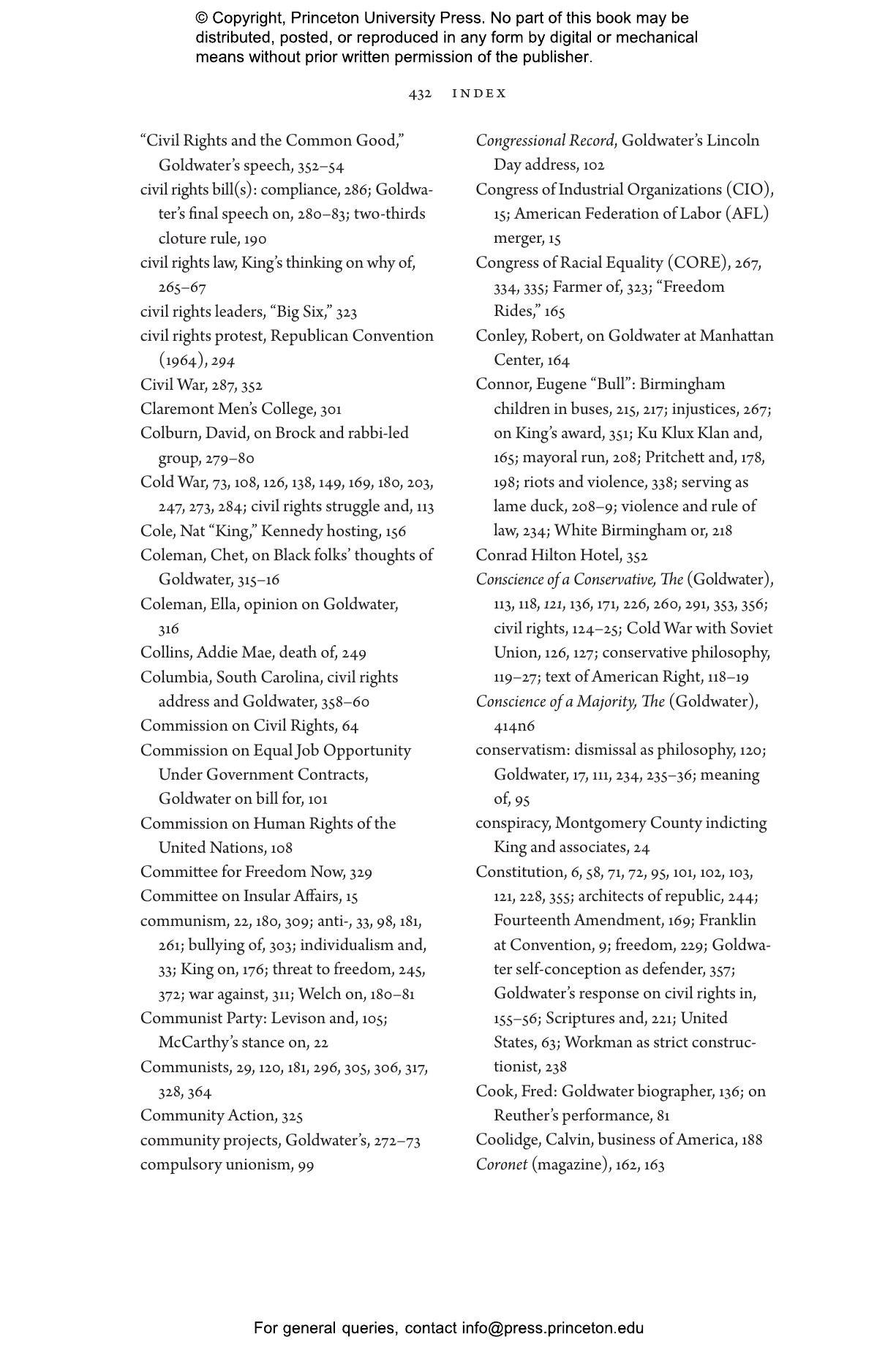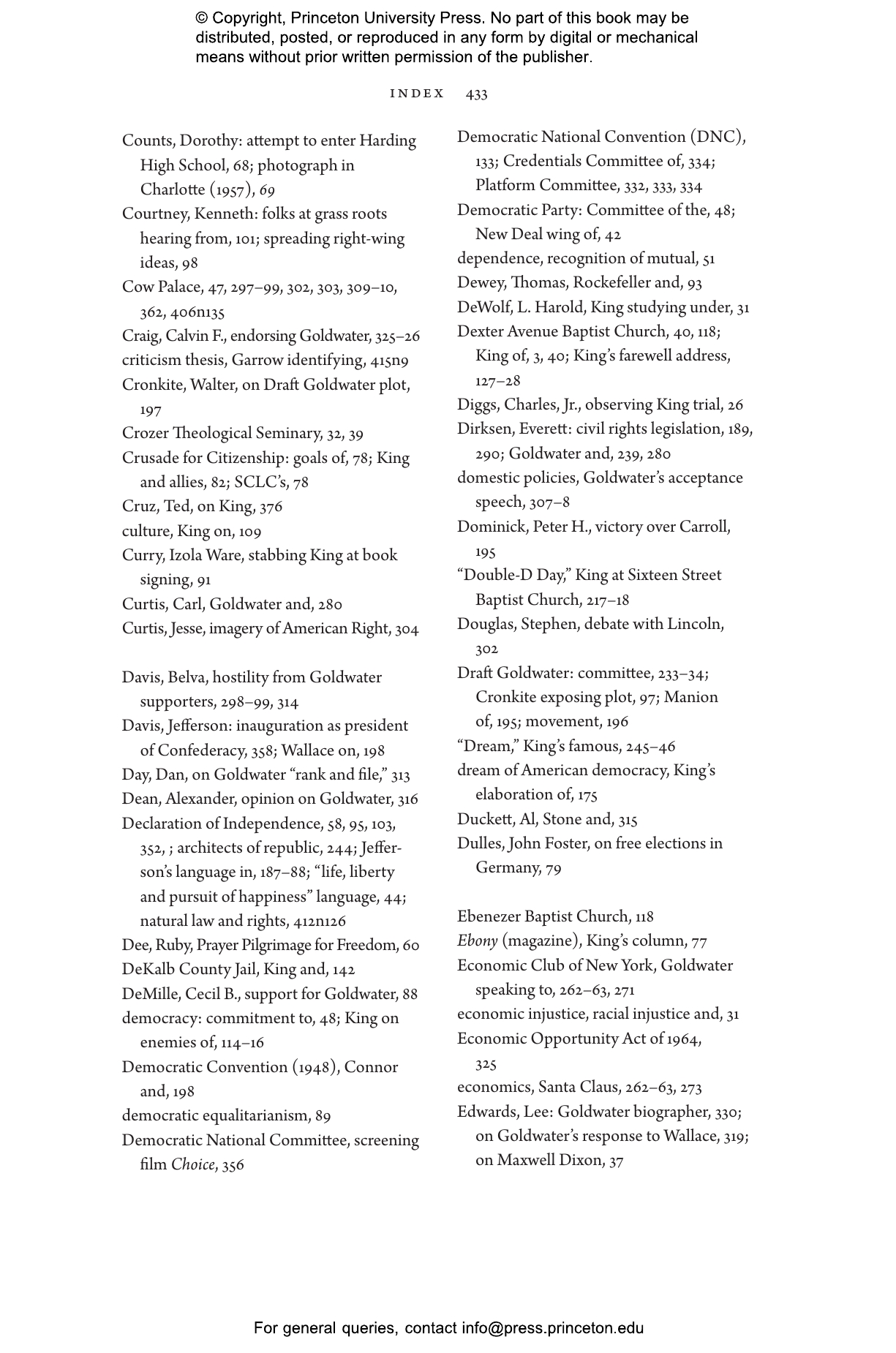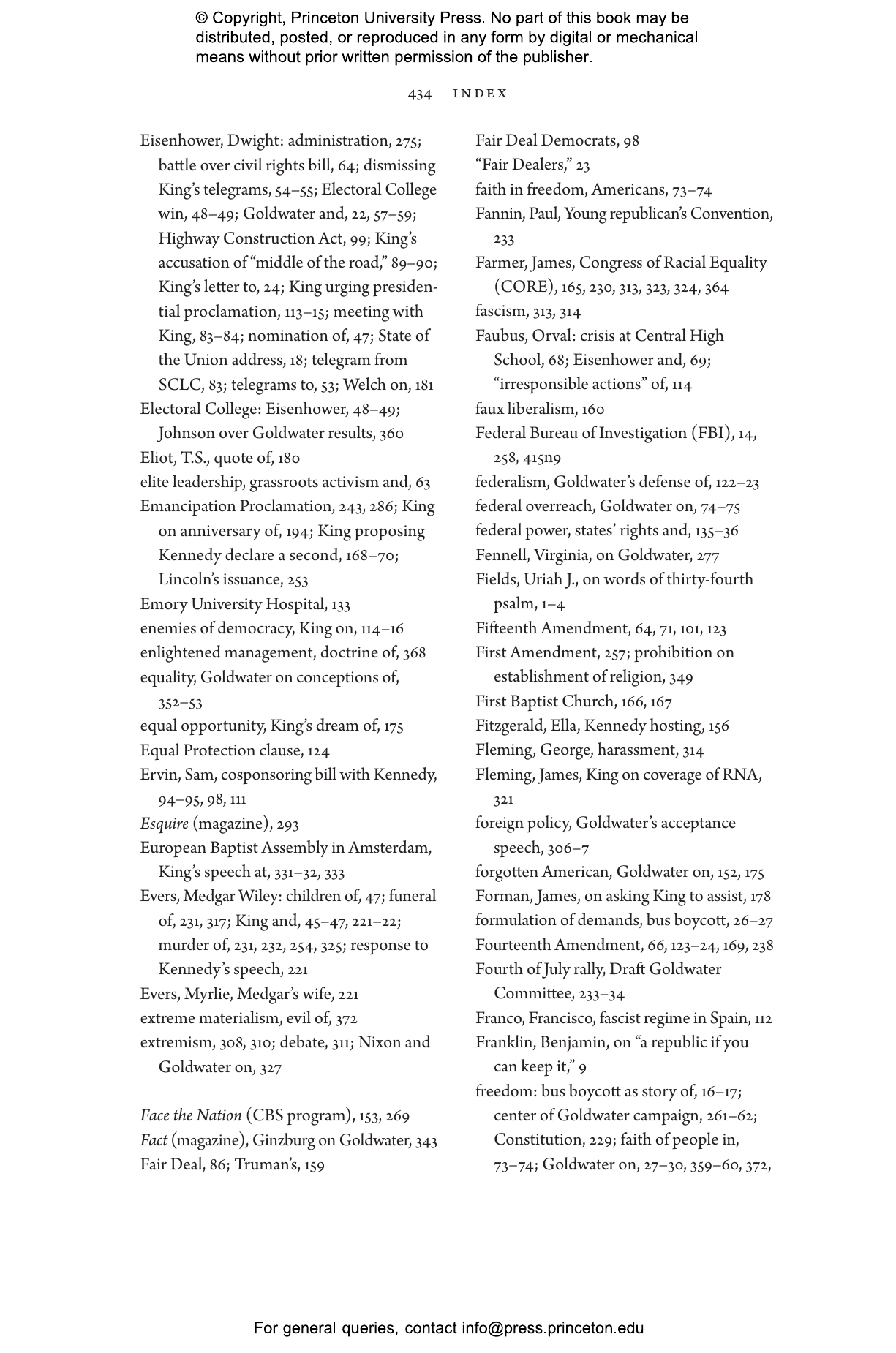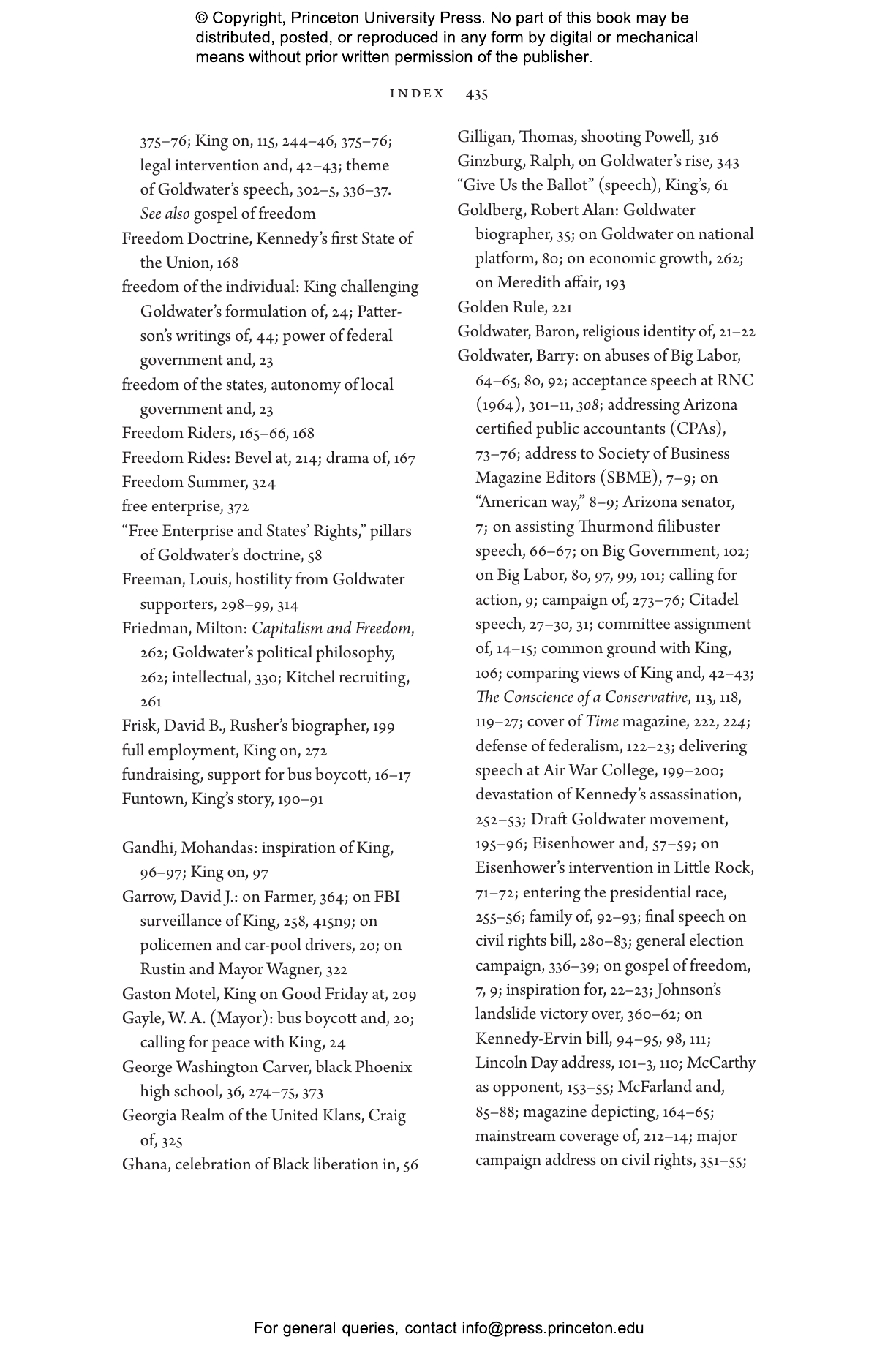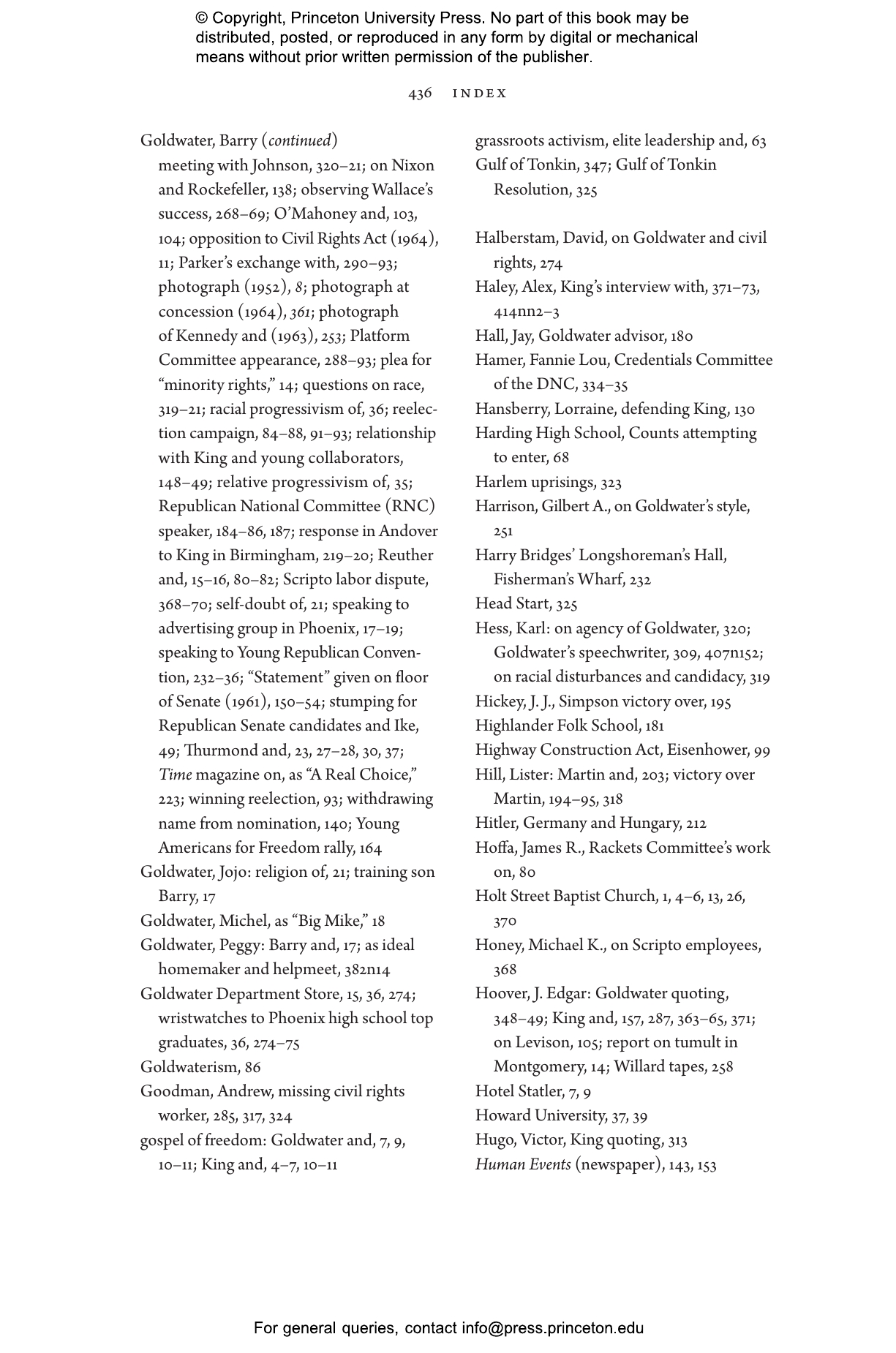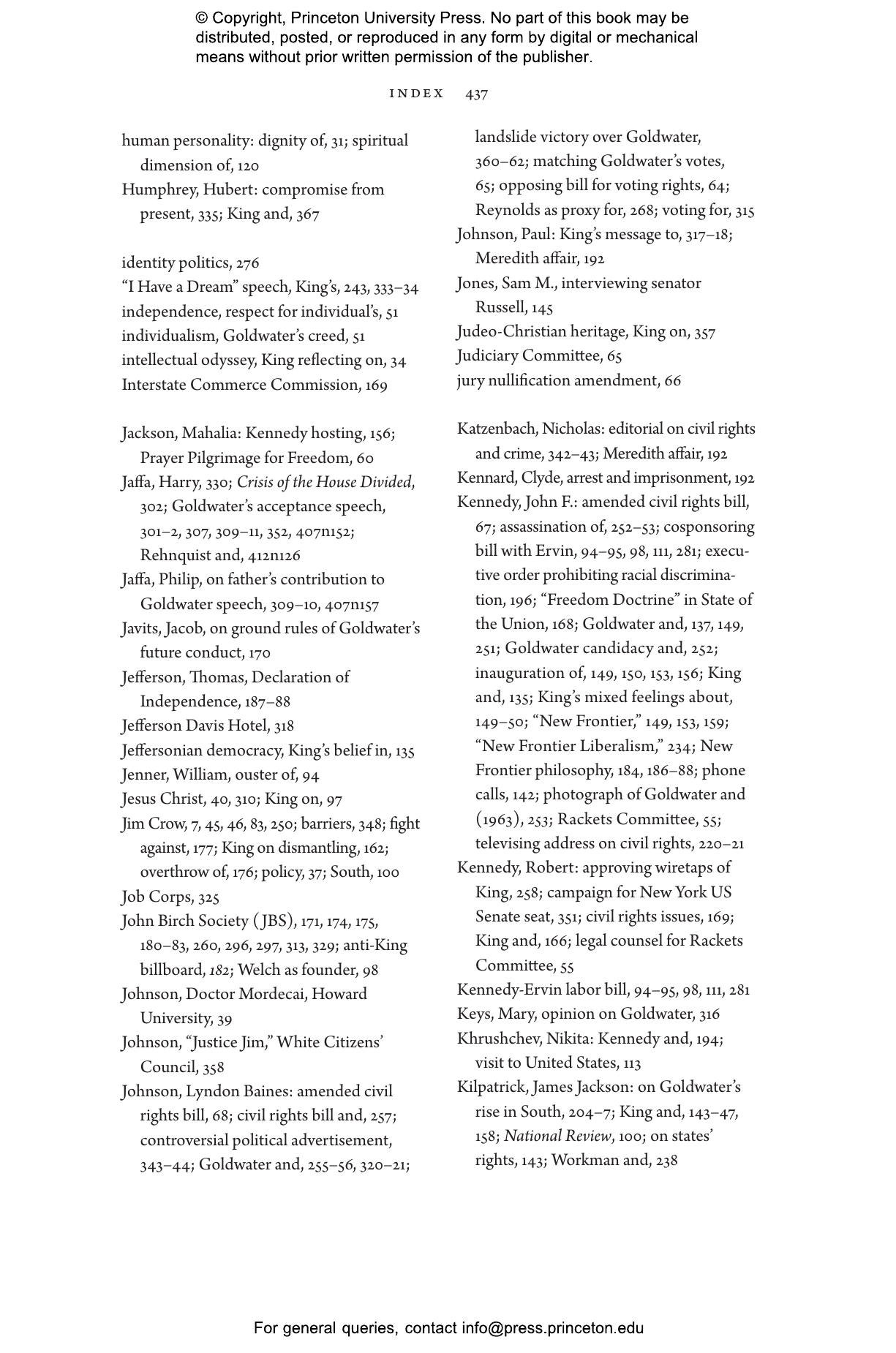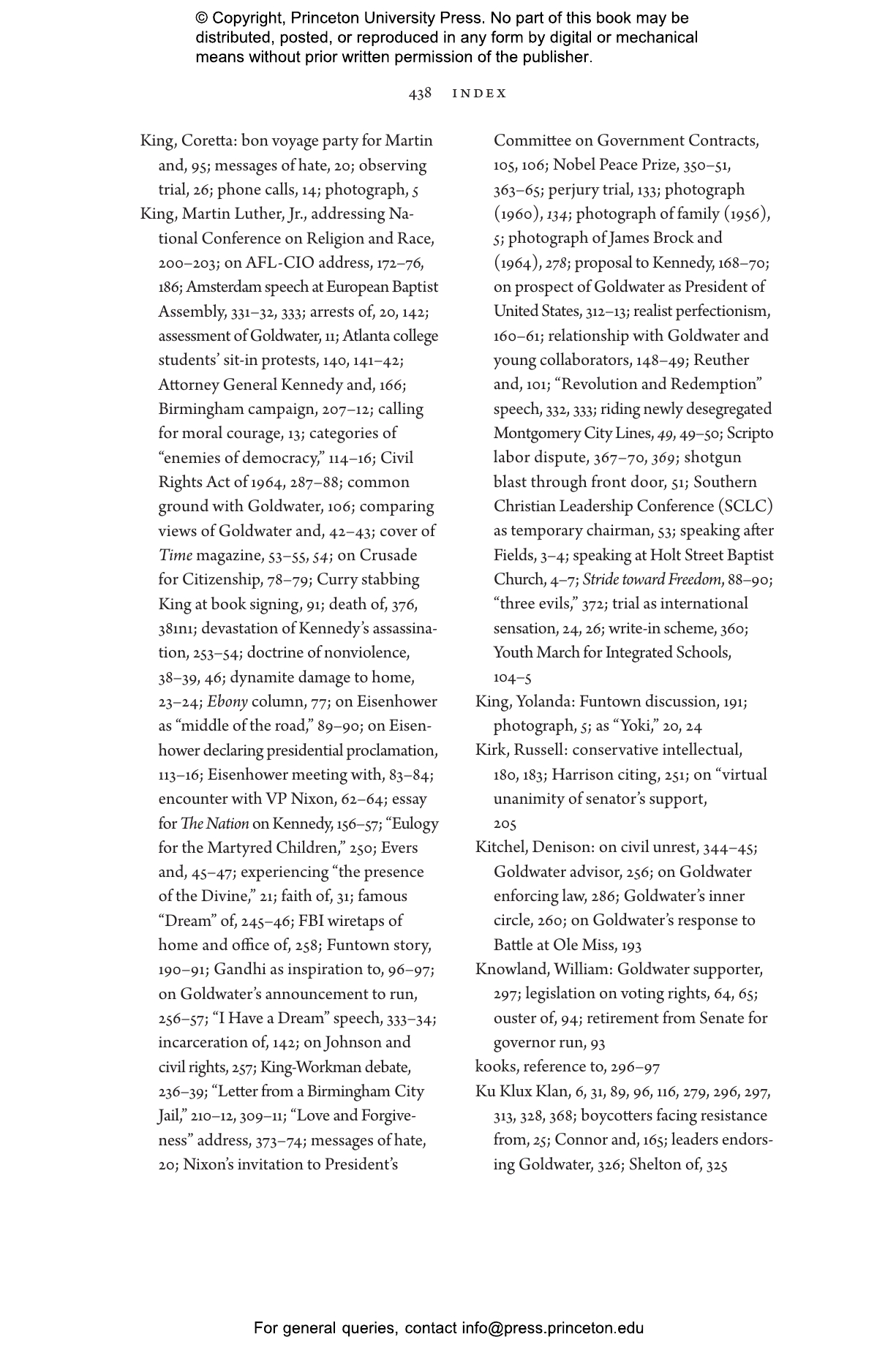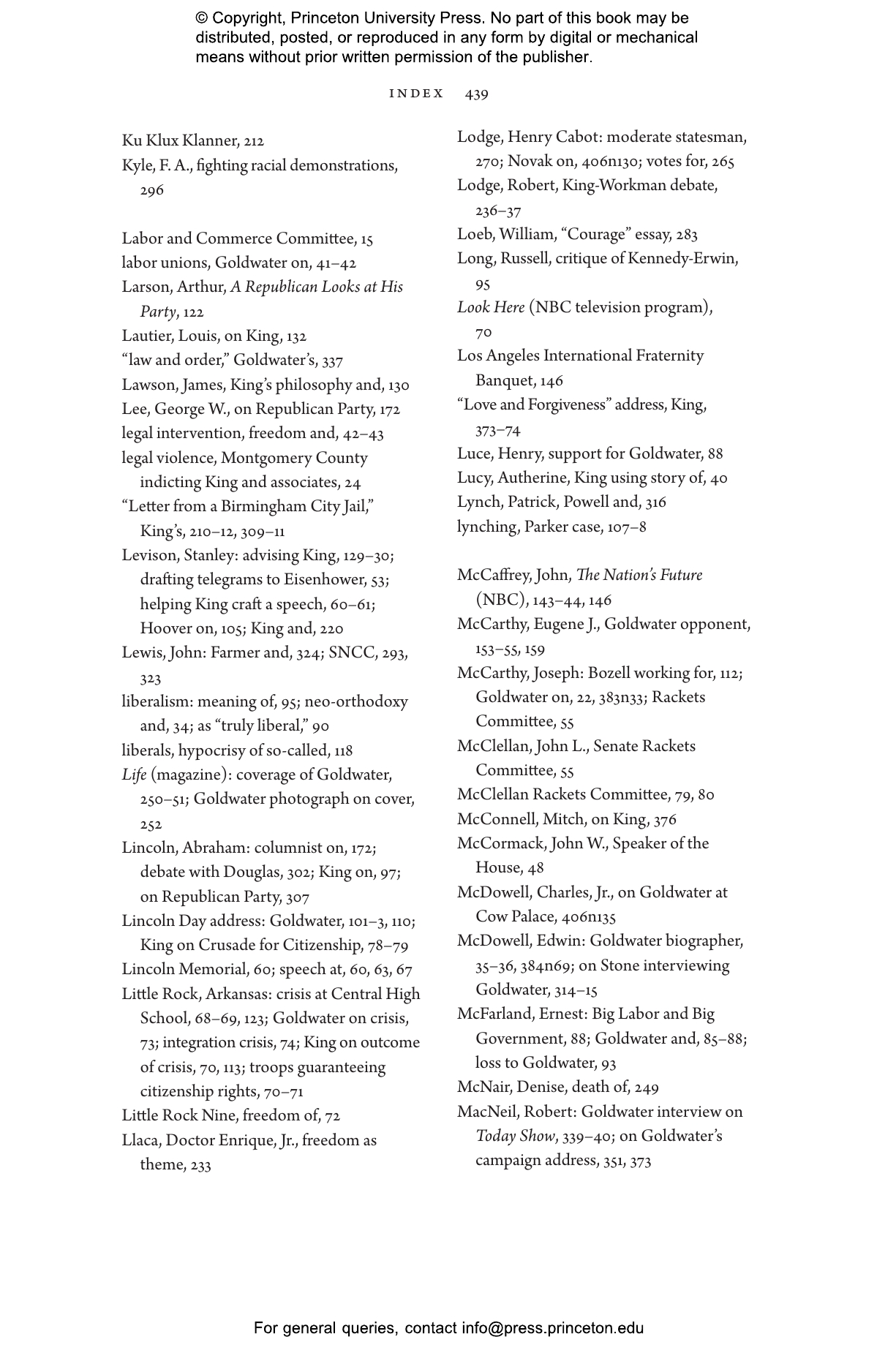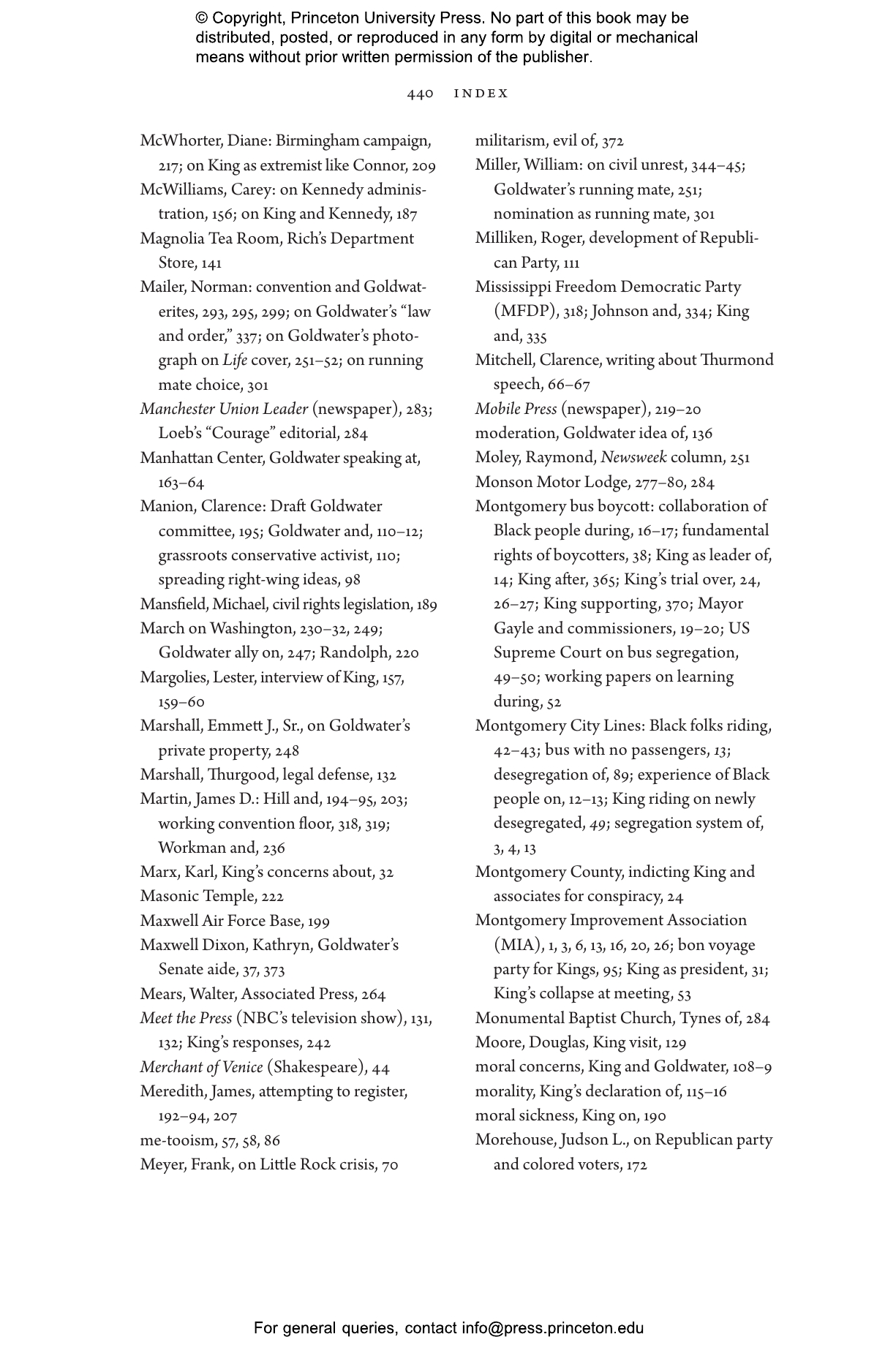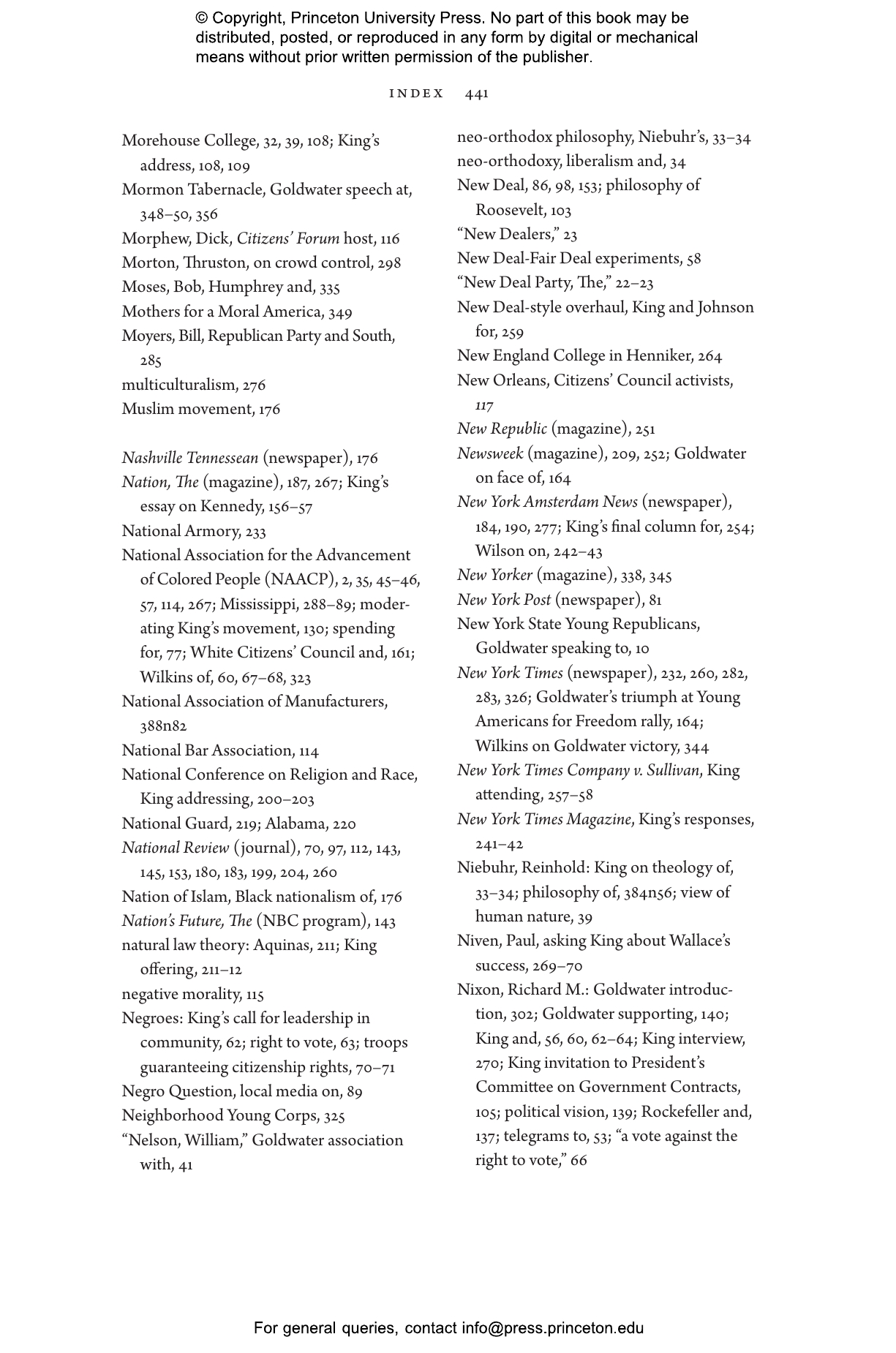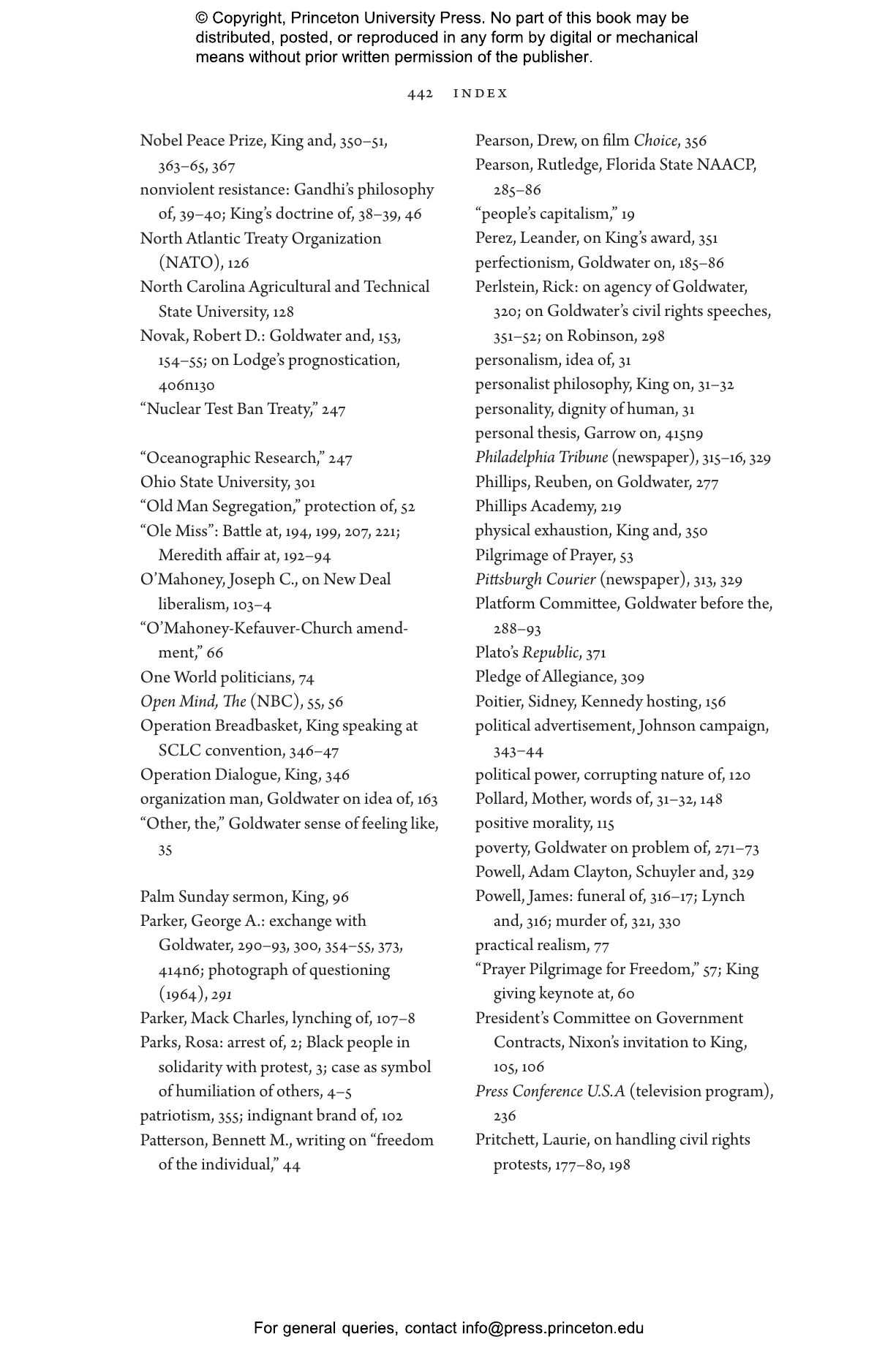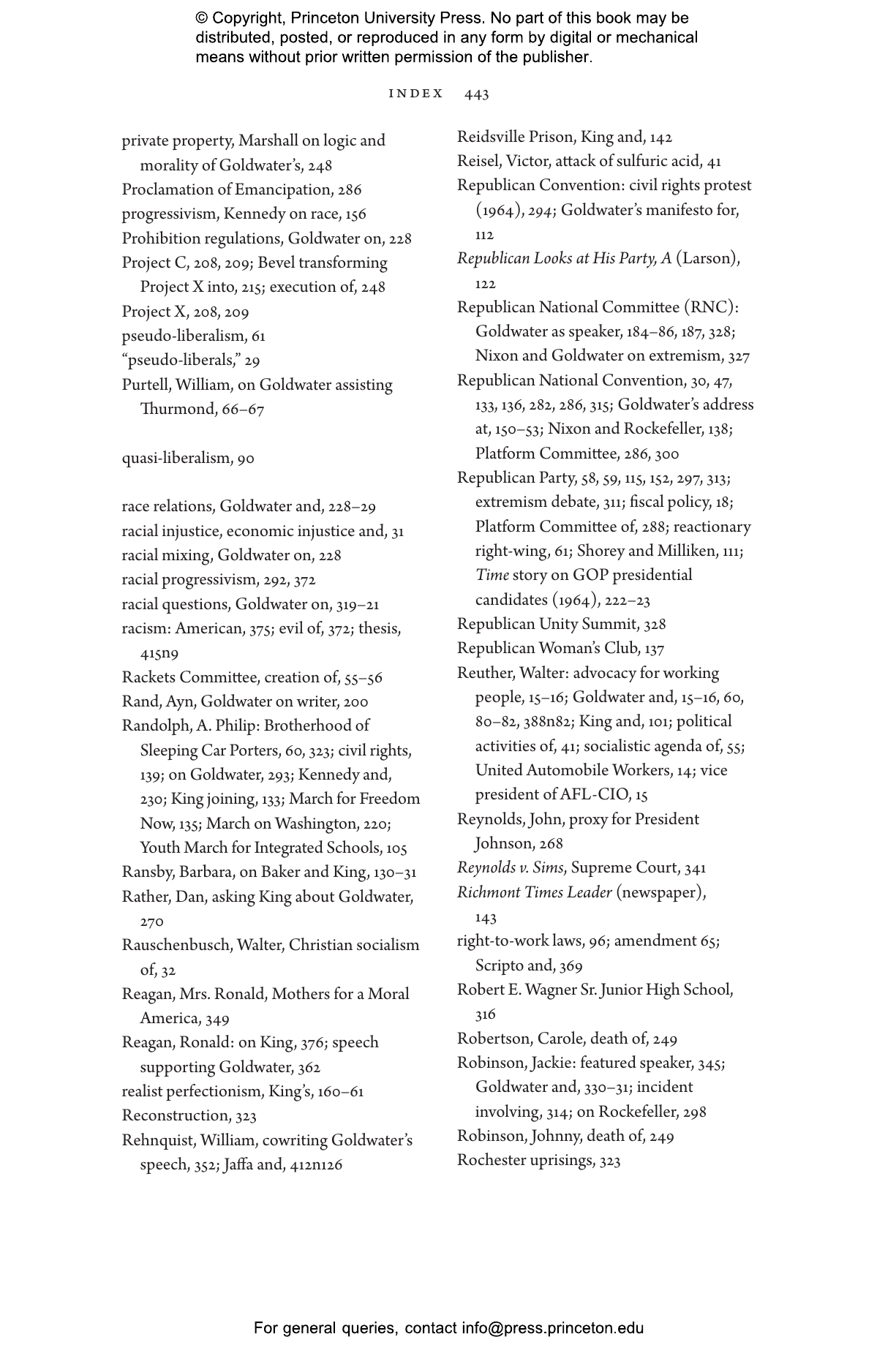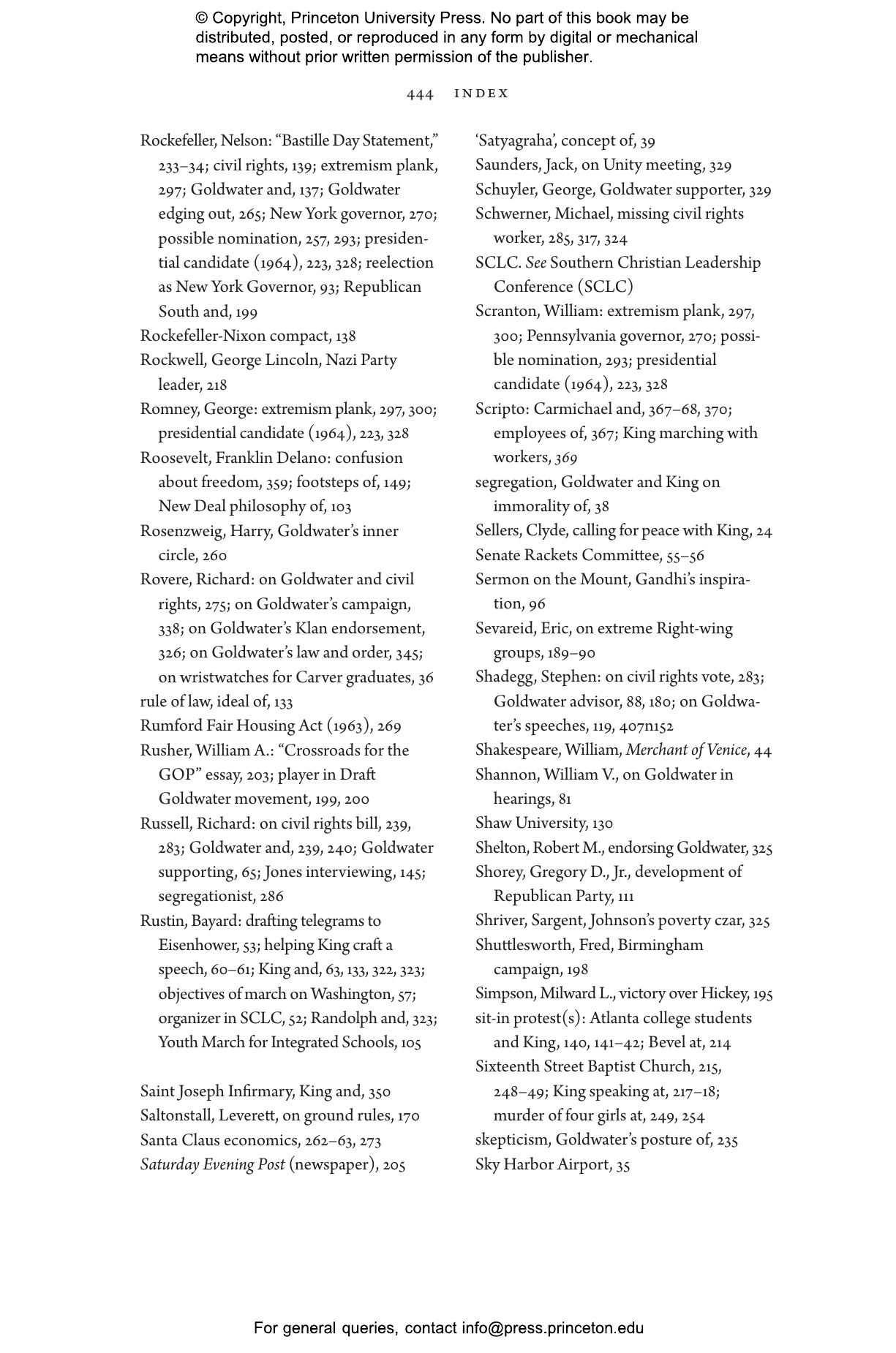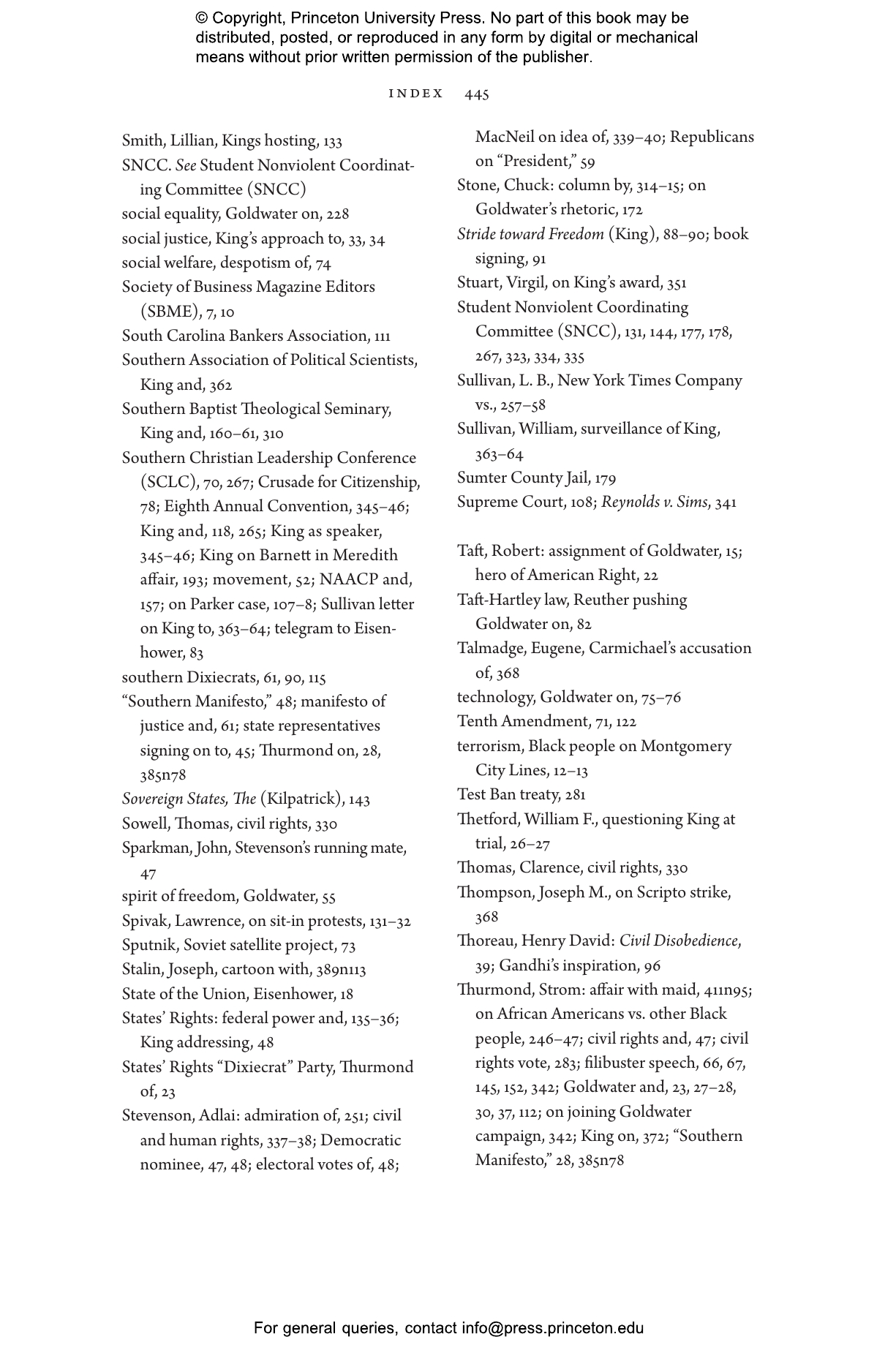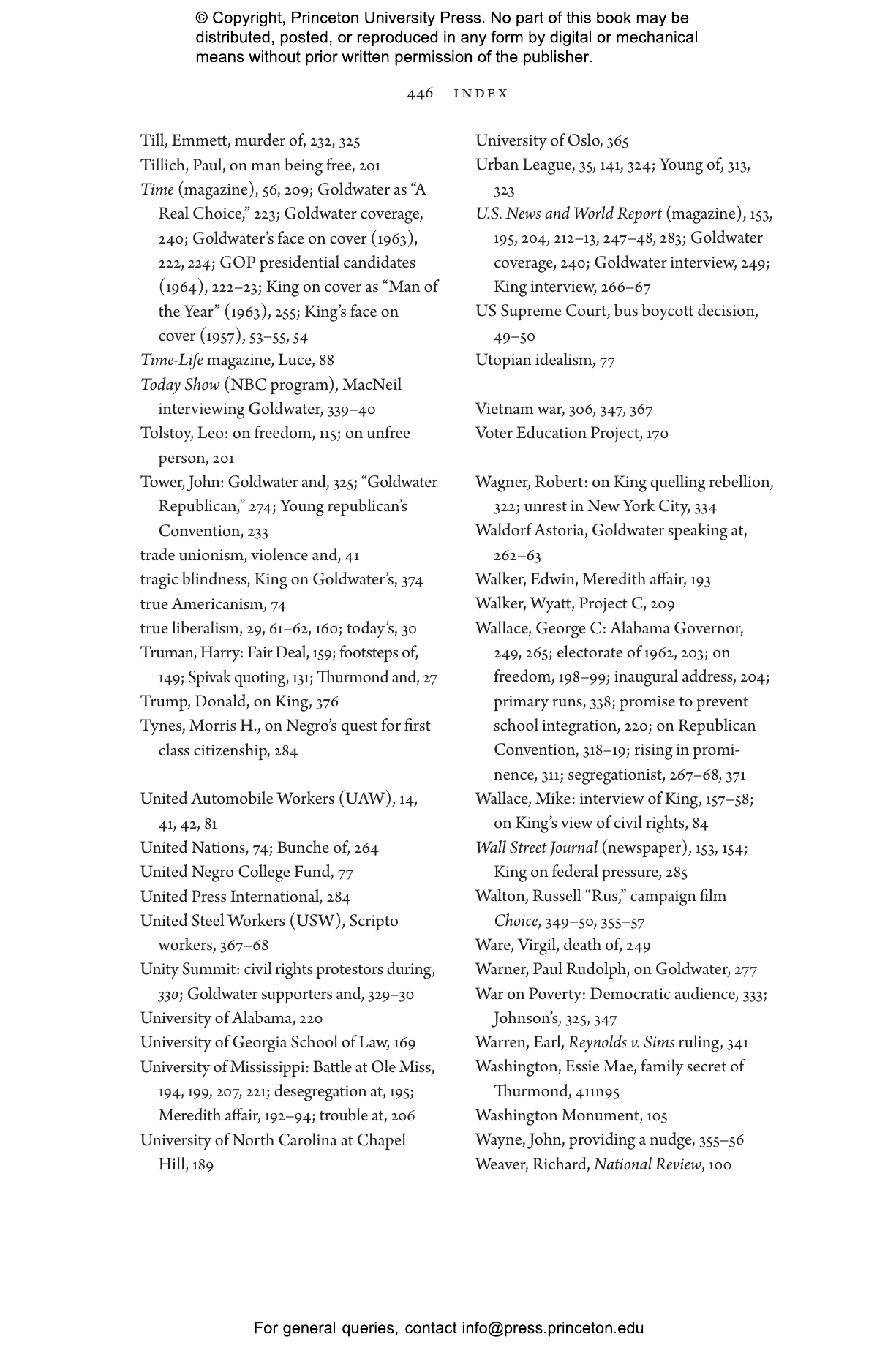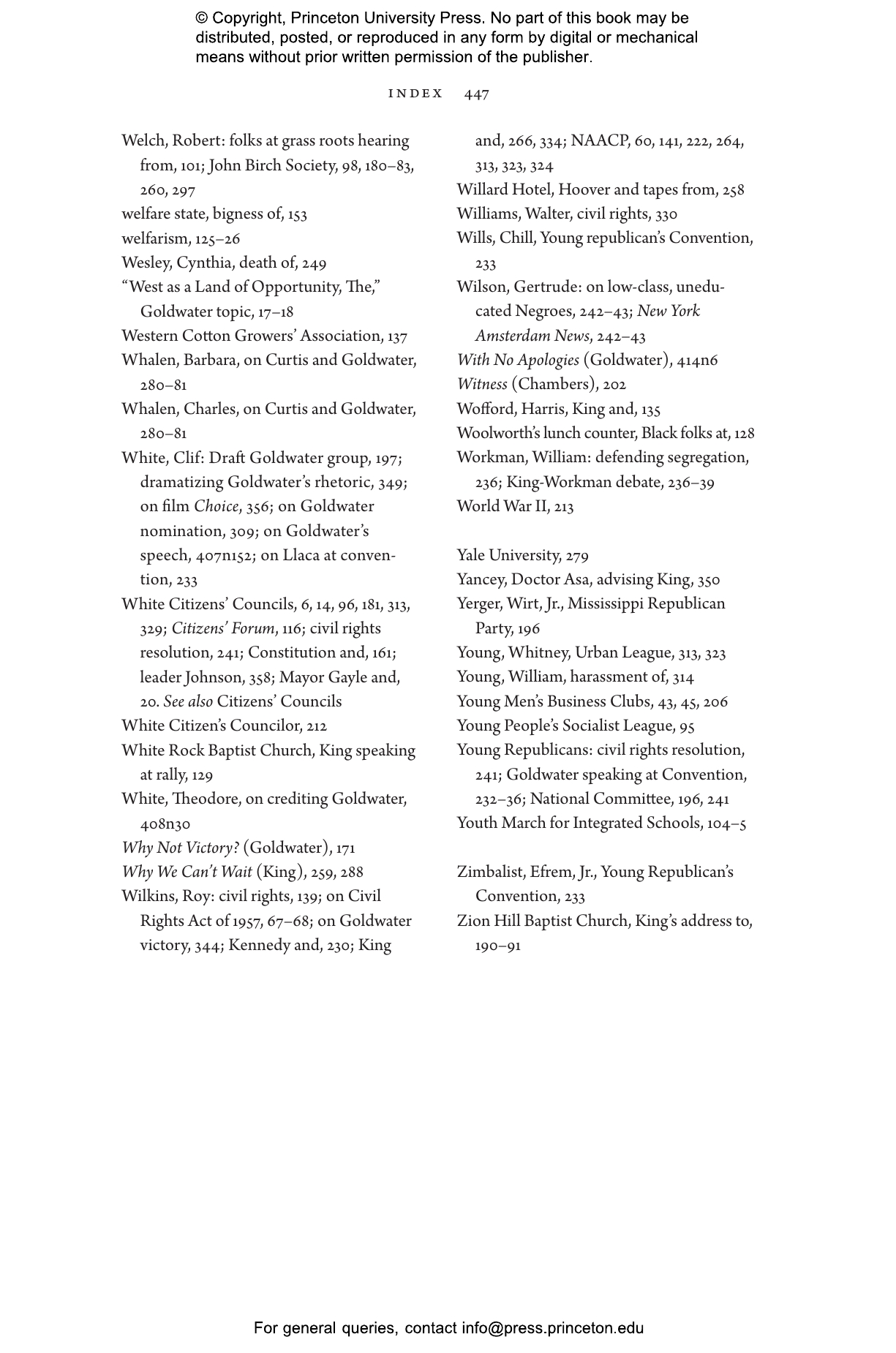In the mid-1950s, Barry Goldwater and Martin Luther King Jr. emerged as the leaders of two diametrically opposed freedom movements that changed the course of American history—and still divide American politics. King mobilized civil rights activists under the banner of “freedom now,” insisting that true freedom would not be realized until all people—regardless of race—were empowered politically, economically, and socially. Goldwater rallied conservatives to the cause of “extremism in defense of liberty,” advocating radical individualism. In One Man’s Freedom, Nicholas Buccola tells the compelling story of Goldwater and King’s dramatic decade-long debate over the meaning of an all-important American ideal.
Part dual biography, part history, One Man’s Freedom traces the actions and words of Goldwater and King over a crucial and eventful decade, from their dizzying rise through 1964, which ended with Goldwater’s landslide defeat in the presidential election and King’s Nobel Peace Prize. The book chronicles why Goldwater and King, who never met in person, came to view each other as perhaps the greatest threat to freedom in America. It explains how their ideas of freedom could be so vastly different, yet both so deeply rooted in American history and their times. And it shows how their disagreement continues to shape and explain politics today, when the bitter divisions between Republicans and Democrats often come down to the question of what kind of freedom Americans want—the one defined by Goldwater or by King?
Nicholas Buccola is professor of government and the Jules L. Whitehill Professor of Humanism and Ethics at Claremont McKenna College. He is the author of The Fire Is upon Us: James Baldwin, William F. Buckley Jr., and the Debate over Race in America (91��ɫ), which was a New York Times Book Review Editors’ Choice, and The Political Thought of Frederick Douglass.
32758
"[Buccola] sifts through speeches, interviews, and writings by King and Goldwater to elucidate the ideologies that continue to hold sway—and divide Americans—to this day…this readable and relevant intellectual history is grounded in a dramatic narrative of American politics."—Kirkus Reviews
“I have never encountered a more superb work of intellectual history than this exceptionally rich and authoritative book. Buccola’s absolutely fair-minded and consistently penetrating analysis of Goldwater’s beliefs is especially striking.”—David J. Garrow, Pulitzer Prize–winning author of Bearing the Cross and Rising Star
“Nicholas Buccola is a penetrating intellectual historian and a wonderful storyteller. In One Man’s Freedom, he brings the politics of the mid-twentieth century to life in a way that no one else has done. In Goldwater and King’s simmering battle over race, labor, the scope of government, and ultimately, the soul of the nation, we can see the future being drawn, a pattern for the present in all its pathology and tragedy. At once a stirring account of the civil rights movement and a chronicle of Goldwater’s campaign to be Trump before Trump, this is essential reading for anyone who wants to understand America.”—Laura K. Field, author of Furious Minds: The Making of the MAGA New Right
“From the Montgomery bus boycott to the Civil Rights Act of 1964, Nicholas Buccola traces the emergence of two movements—civil rights and modern conservatism—through the lens of their most emblematic leaders. The result is a strikingly profound, original meditation on freedom’s contested meanings and an urgent reflection on the forces that continue to divide American public life. One Man's Freedom is a must-read.”—Melvin L. Rogers, author of The Darkened Light of Faith: Race, Democracy, and Freedom in African American Political Thought
“Through a powerful narrative, One Man’s Freedom changes the way we look at the 1960s and American politics—and shows us new possibilities for American political life.”—Susan McWilliams Barndt, author of The American Road Trip and American Political Thought
This publication has been produced to meet accepted Accessibility standards and contains various accessibility features including concise image descriptions, a table of contents, a page list to navigate to pages corresponding to the print source version, and elements such as headings for structured navigation. Appearance of the text and page layout can be modified according to the capabilities of the reading system.
Accessibility Features
-
WCAG v2.2
-
WCAG level AA
-
Table of contents navigation
-
Single logical reading order
-
Short alternative textual descriptions
-
Print-equivalent page numbering
-
Landmark navigation
-
Index navigation
-
Epub Accessibility Specification 1.1
-
ARIA roles provided
-
All non-decorative content supports reading without sight
-
No known hazards or warnings


